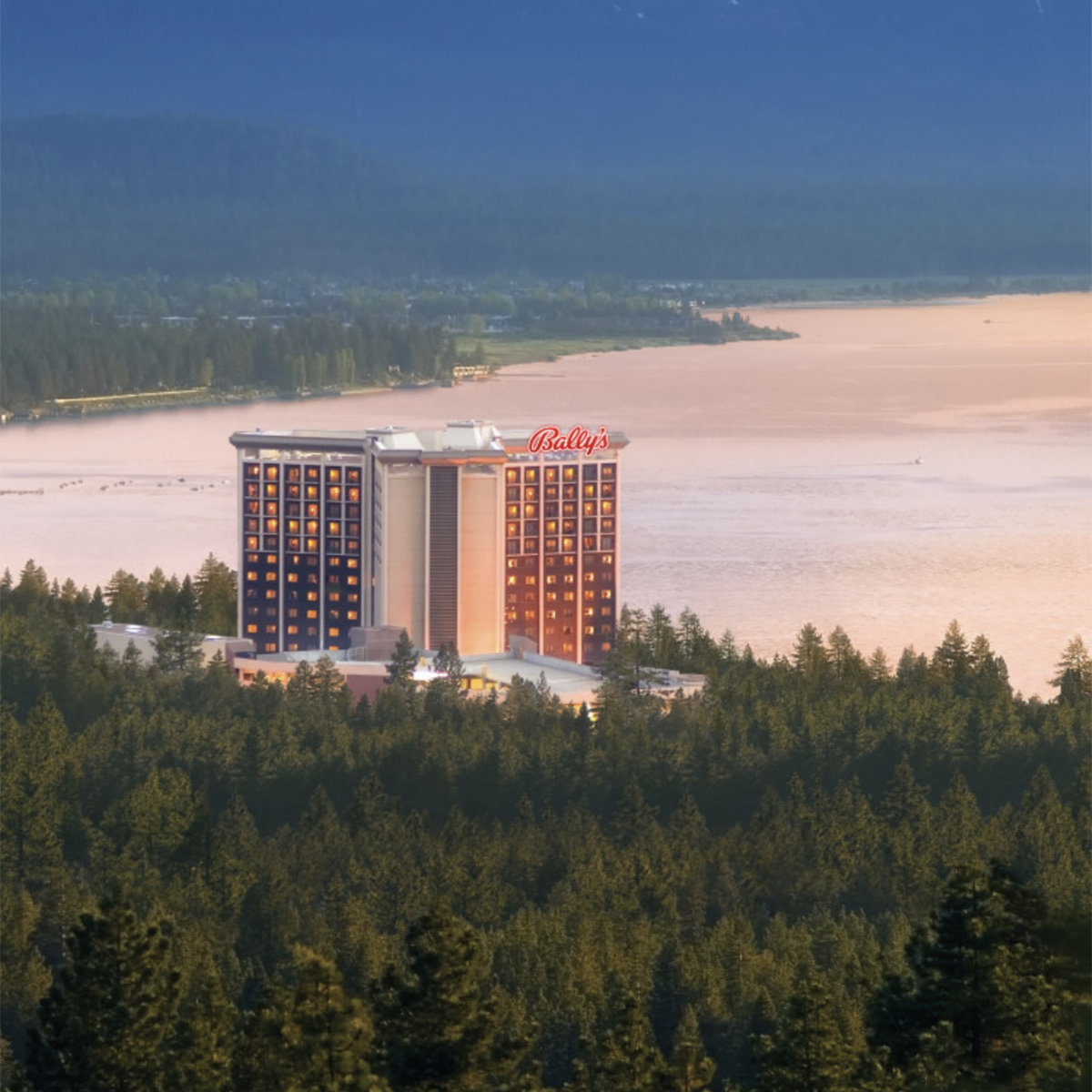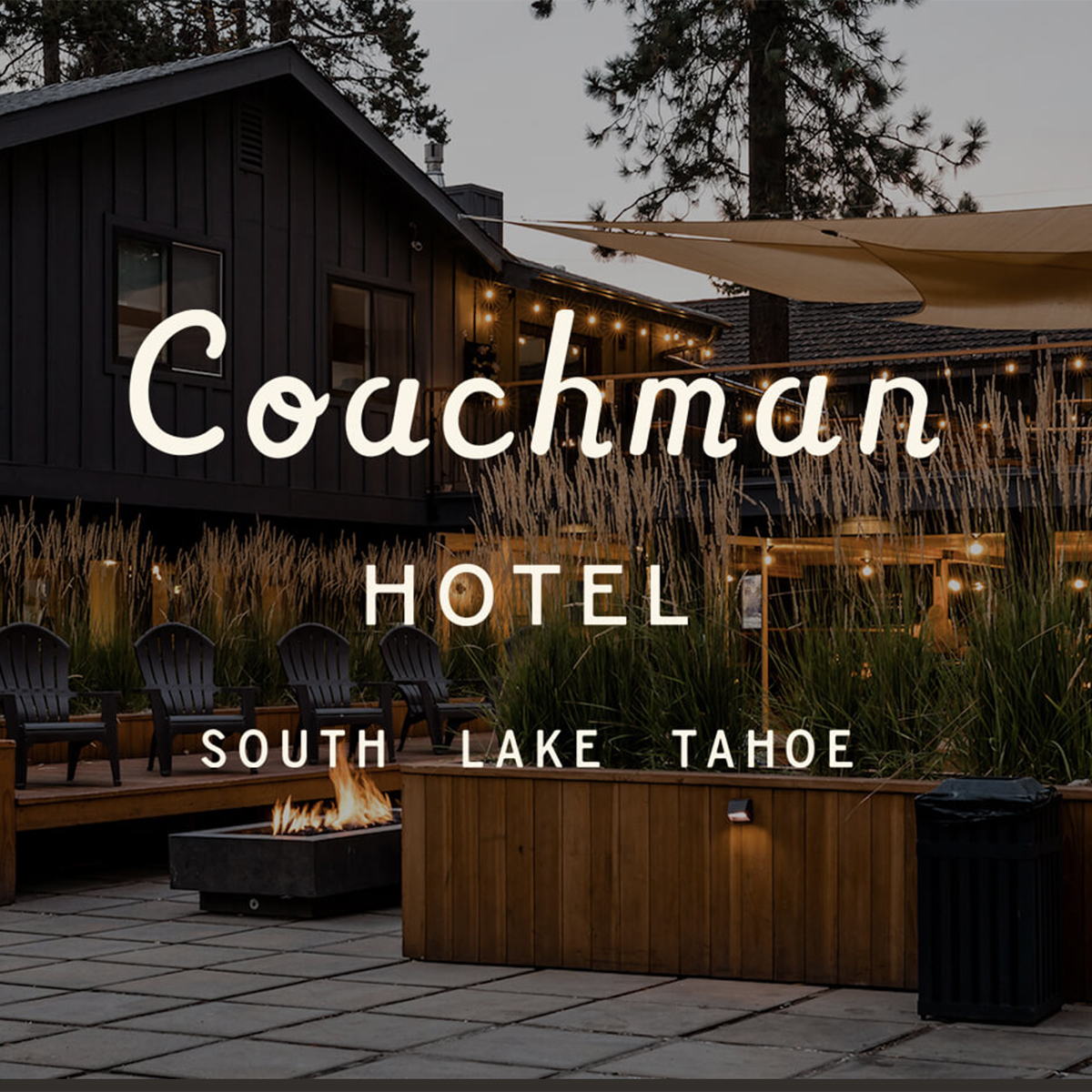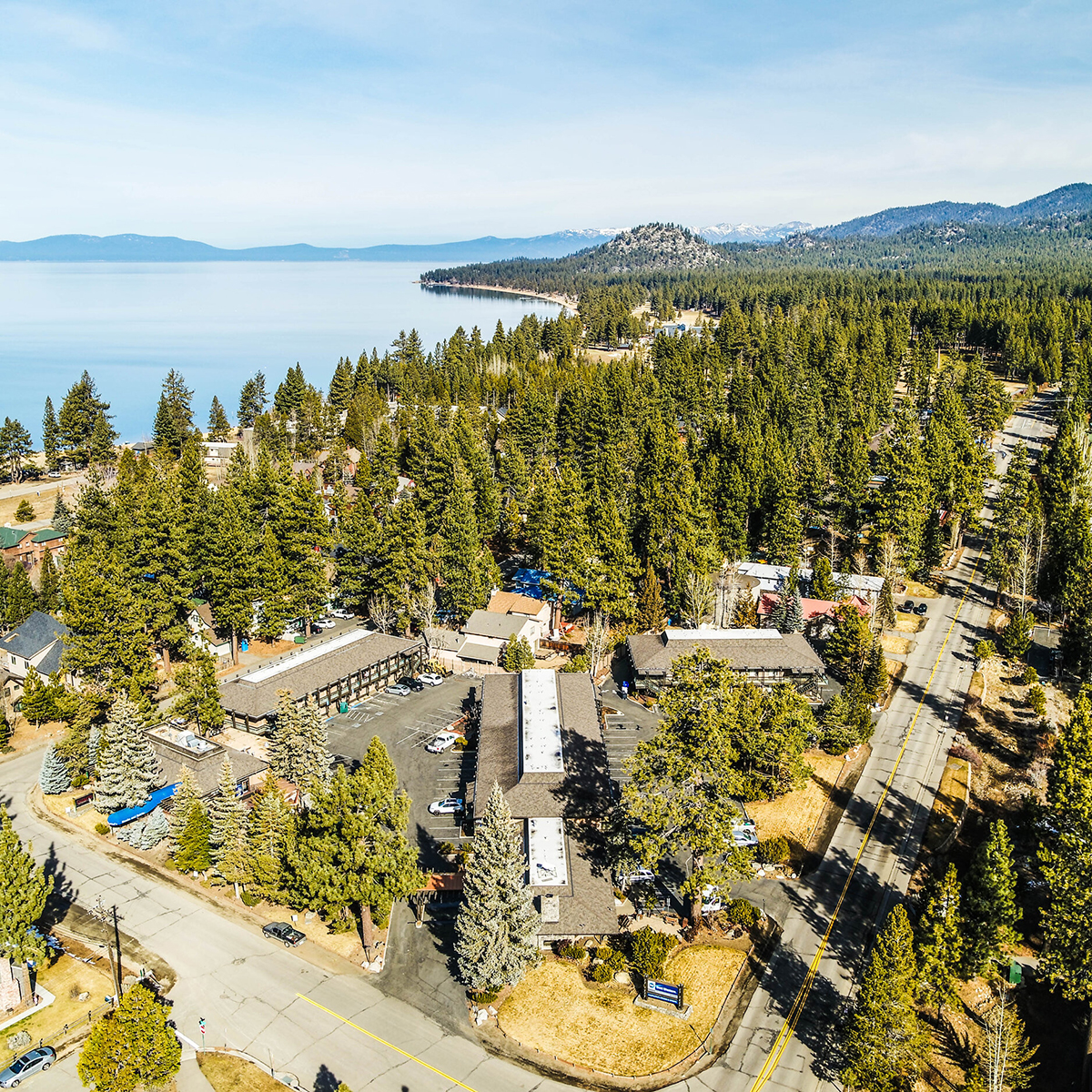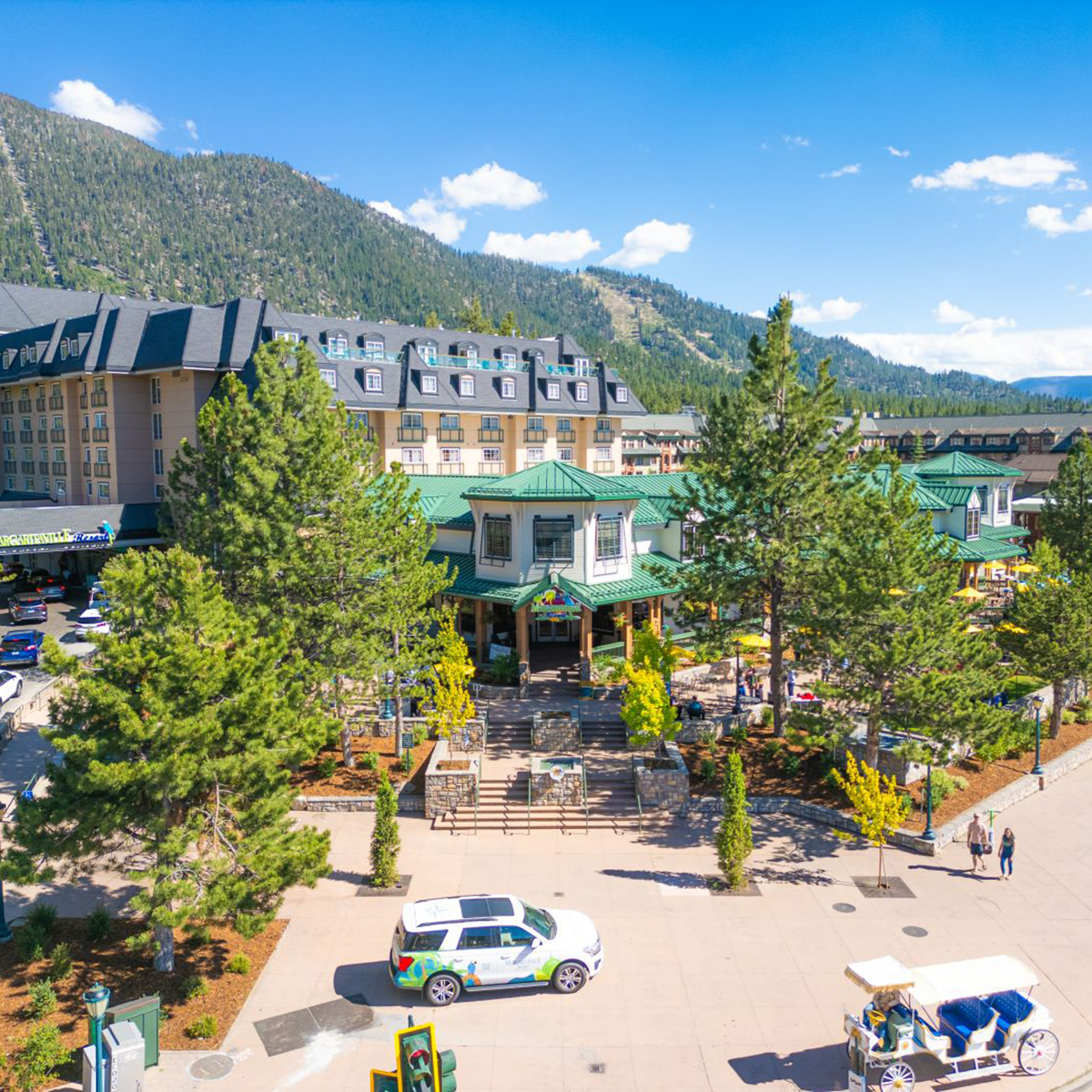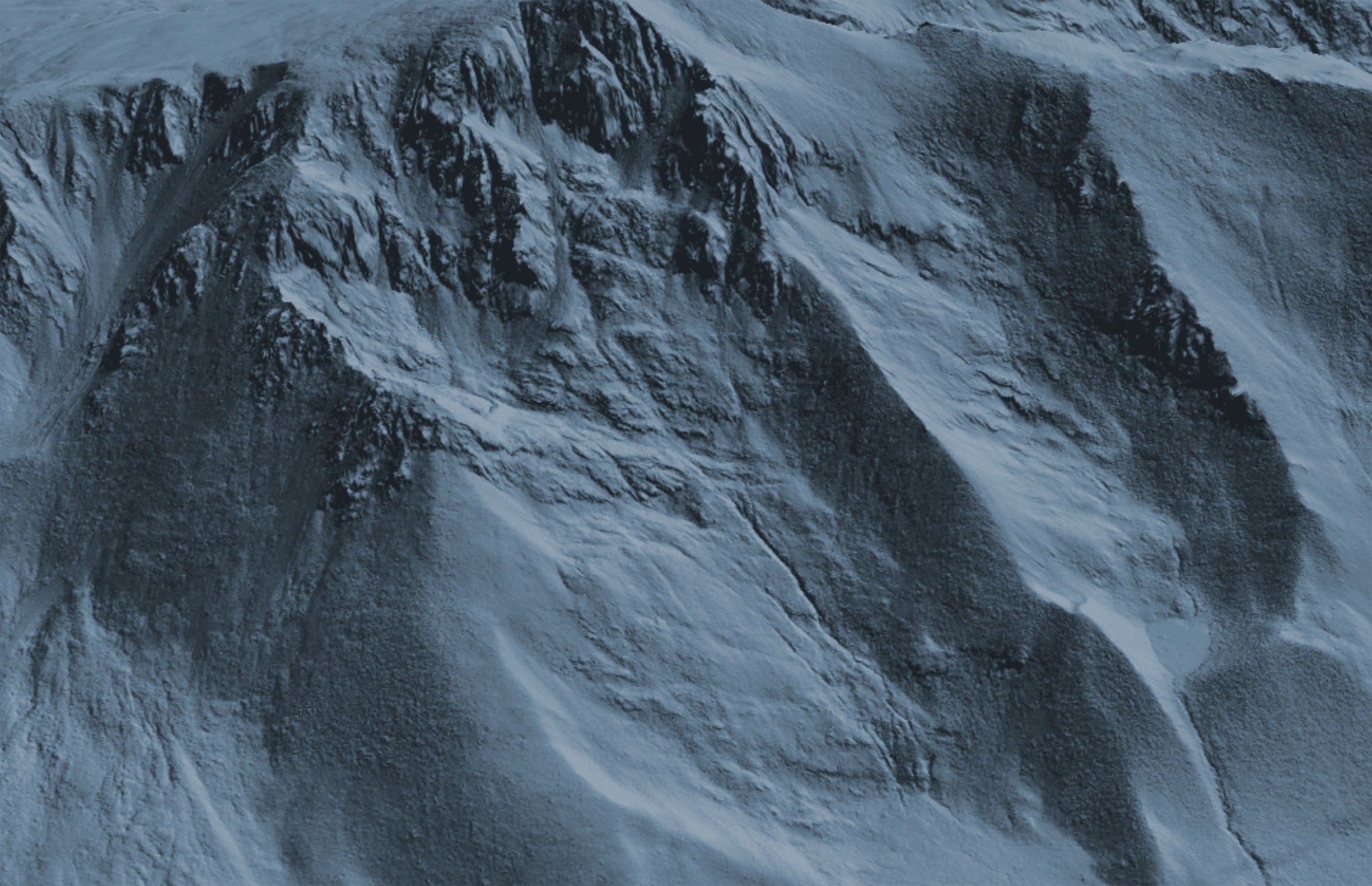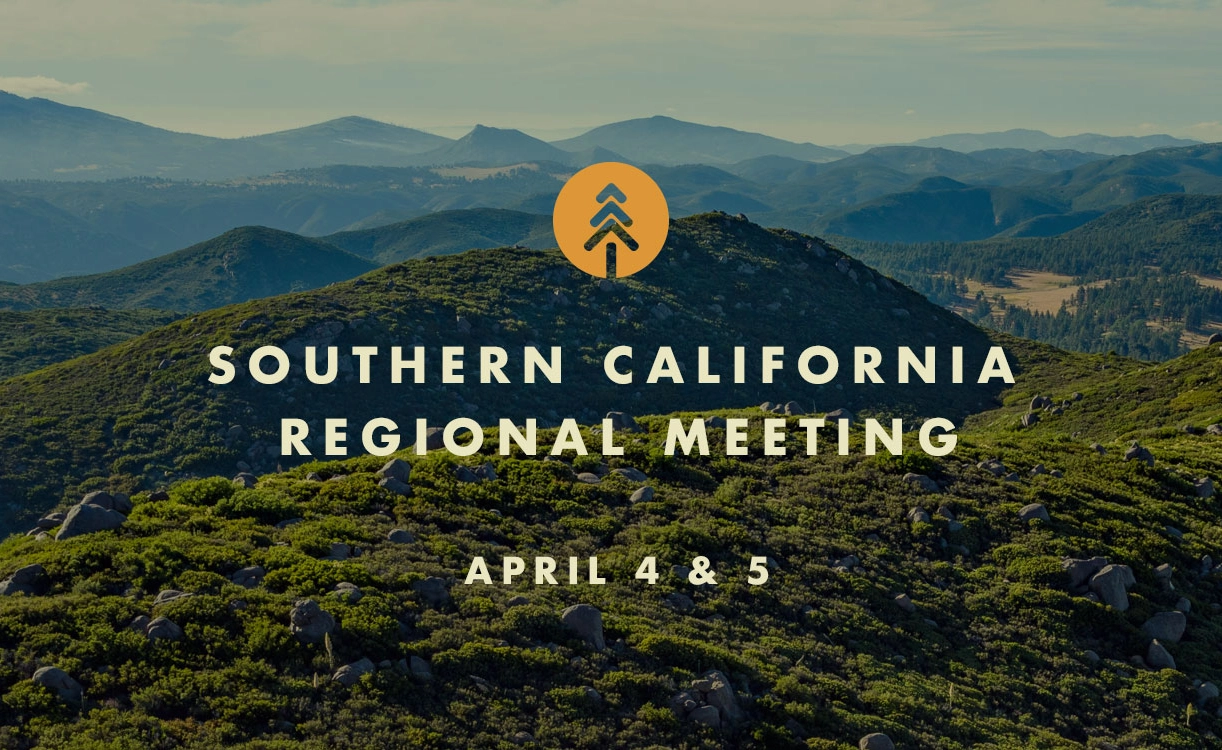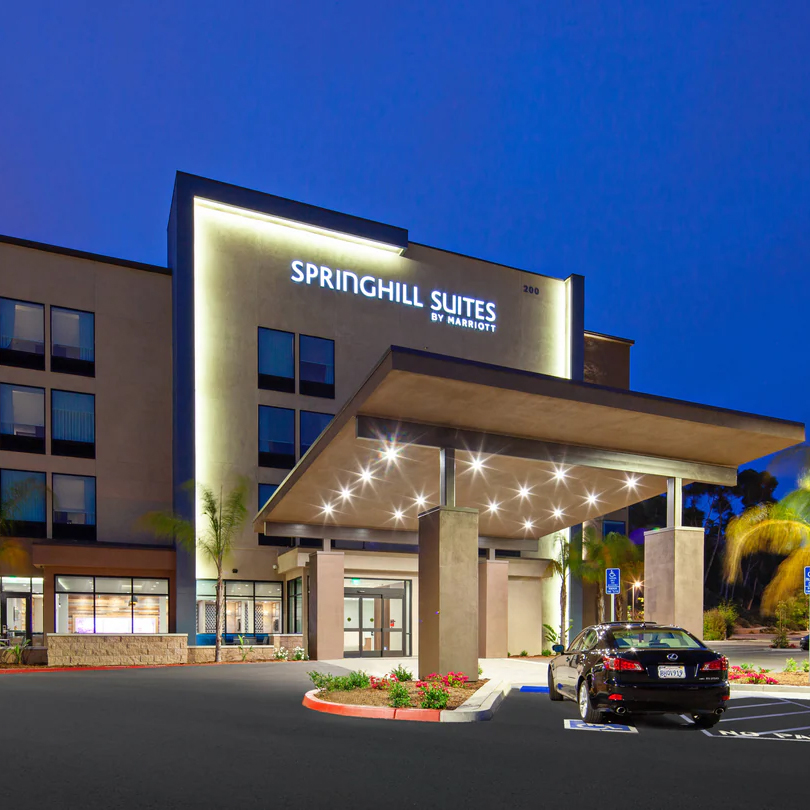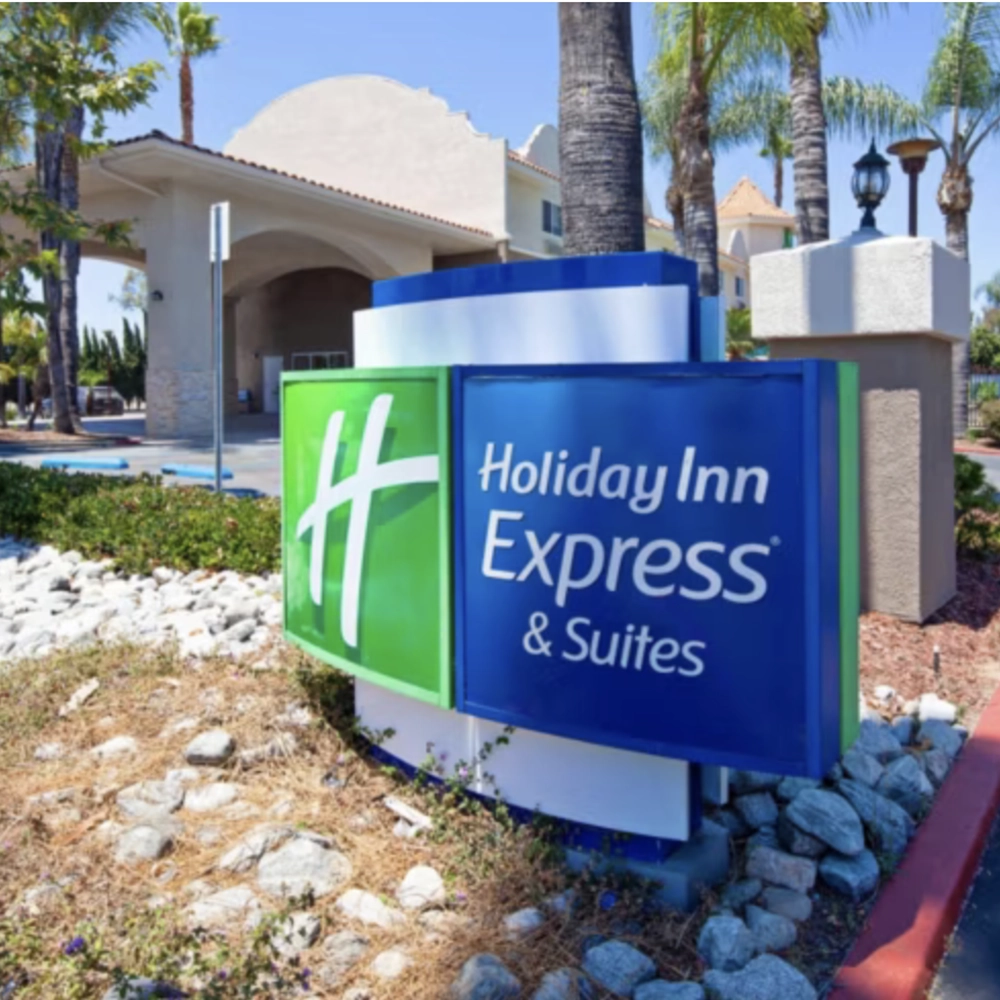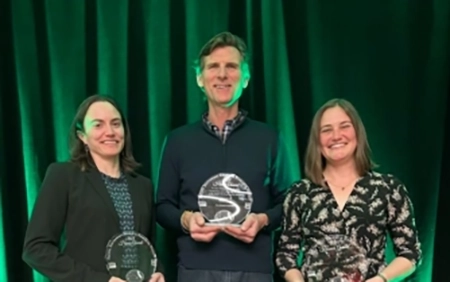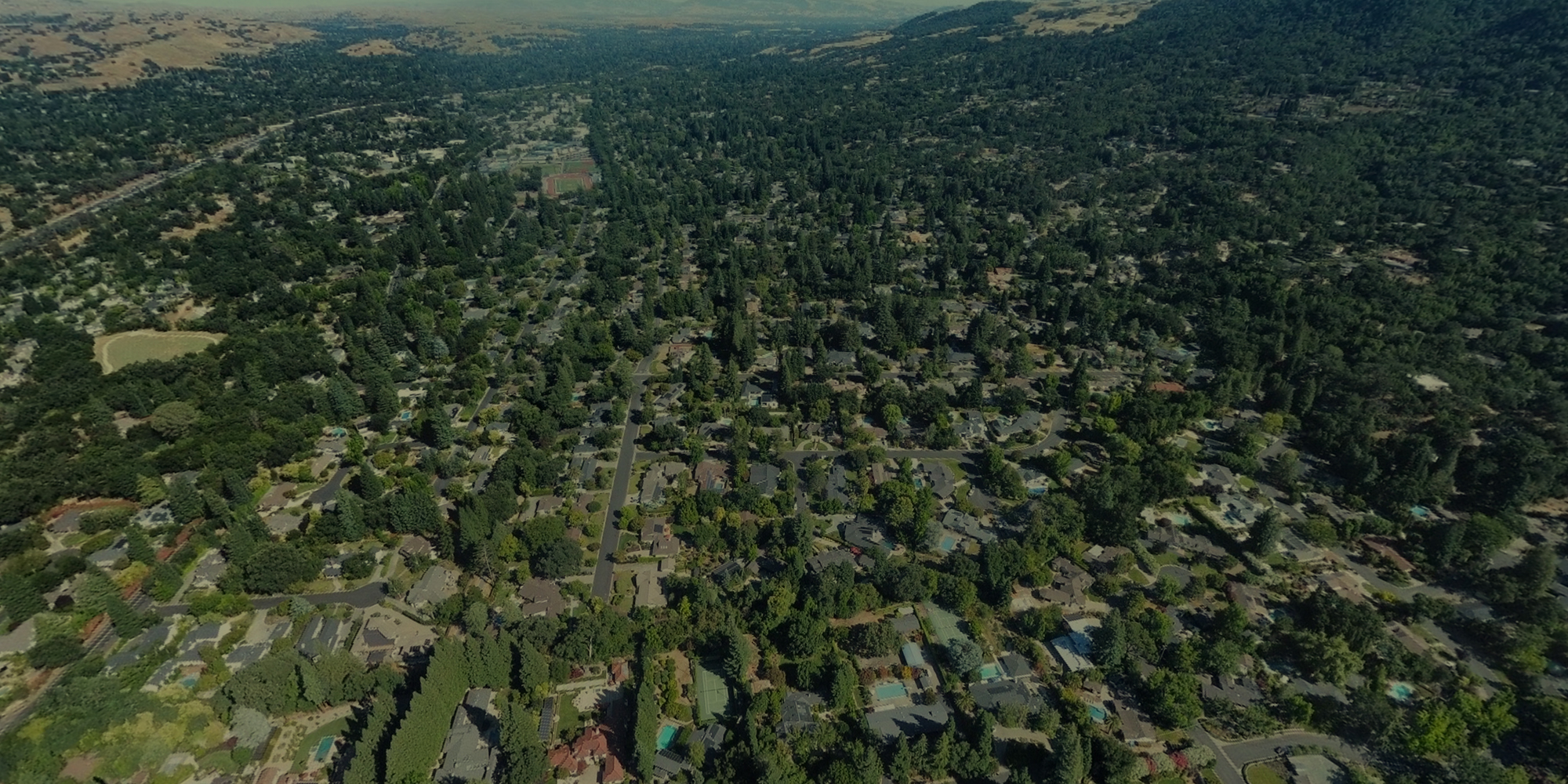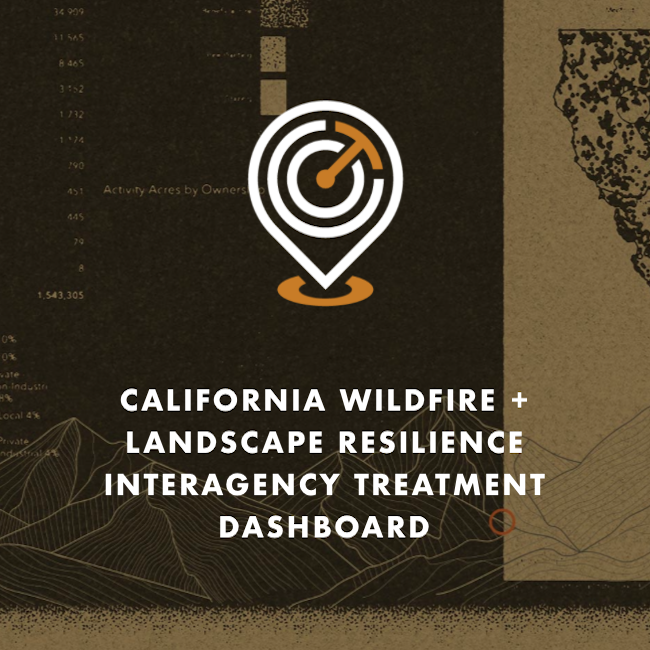Sierra Nevada Regional Meeting 24
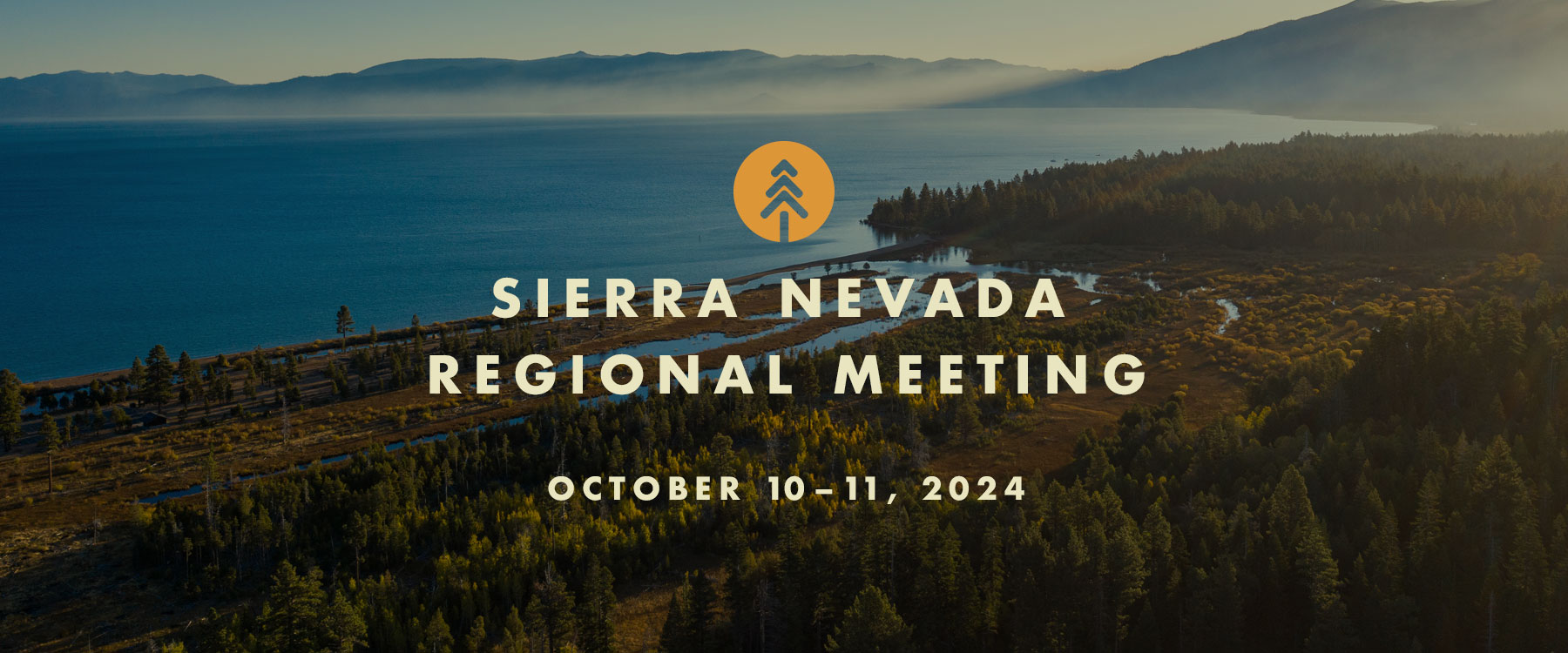
Sierra Nevada Regional Meeting
REGISTER early to reserve your seat at the next meeting of the California Wildfire and Forest Resilience Task Force, October 10 at the Tahoe Blue Event Center in South Lake Tahoe, CA.
Hosted by the California Tahoe Conservancy and the Tahoe Fund, the agenda and activities on October 10 will focus on landscapes and land management issues unique to the Sierra Nevada.
On October 11, Task Force Partners will host field tours offering immersive opportunities to better understand the critical landscape health and wildfire resilience work being done in the Sierra Nevada region.
$25 registration fee is required to cover food and beverage costs.
If this fee poses a hardship, contact ForestTaskForce@fire.ca.gov.
October 10 & 11, 2024
Tahoe Blue Event Center
South Lake Tahoe, CA
EVENT SCHEDULE
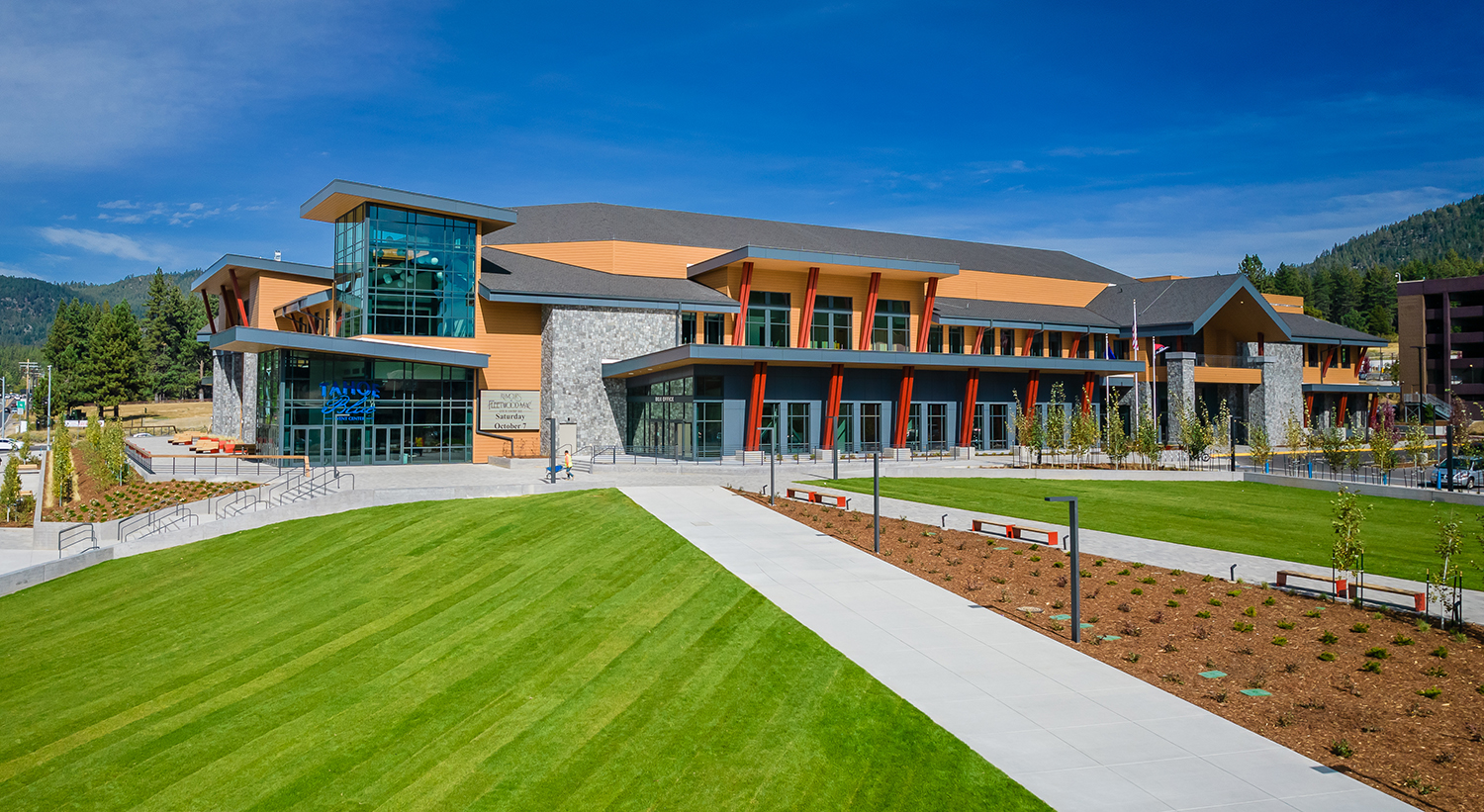
OCTOBER 10 TENTATIVE MEETING SCHEDULE
Resource Fair
8:30 – 10:00 a.m.
Morning Session
10:00 a.m. – 12:30 p.m.
Lunch
12:30 – 2 p.m.
Afternoon Session
2 p.m. – 4:30 p.m.
Reception at the Tahoe Blue Event Center
4:30 p.m. – 6:30 p.m.
hotel information
Questions? Please contact foresttaskforce@fire.ca.gov
Thank You to our Hosts

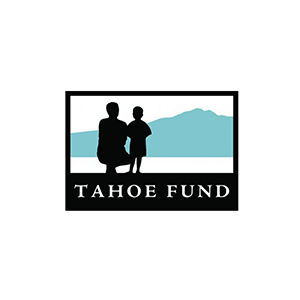
Thank You to our Sponsors
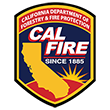
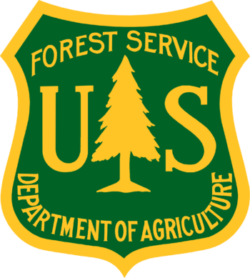
Southern California Regional Meeting
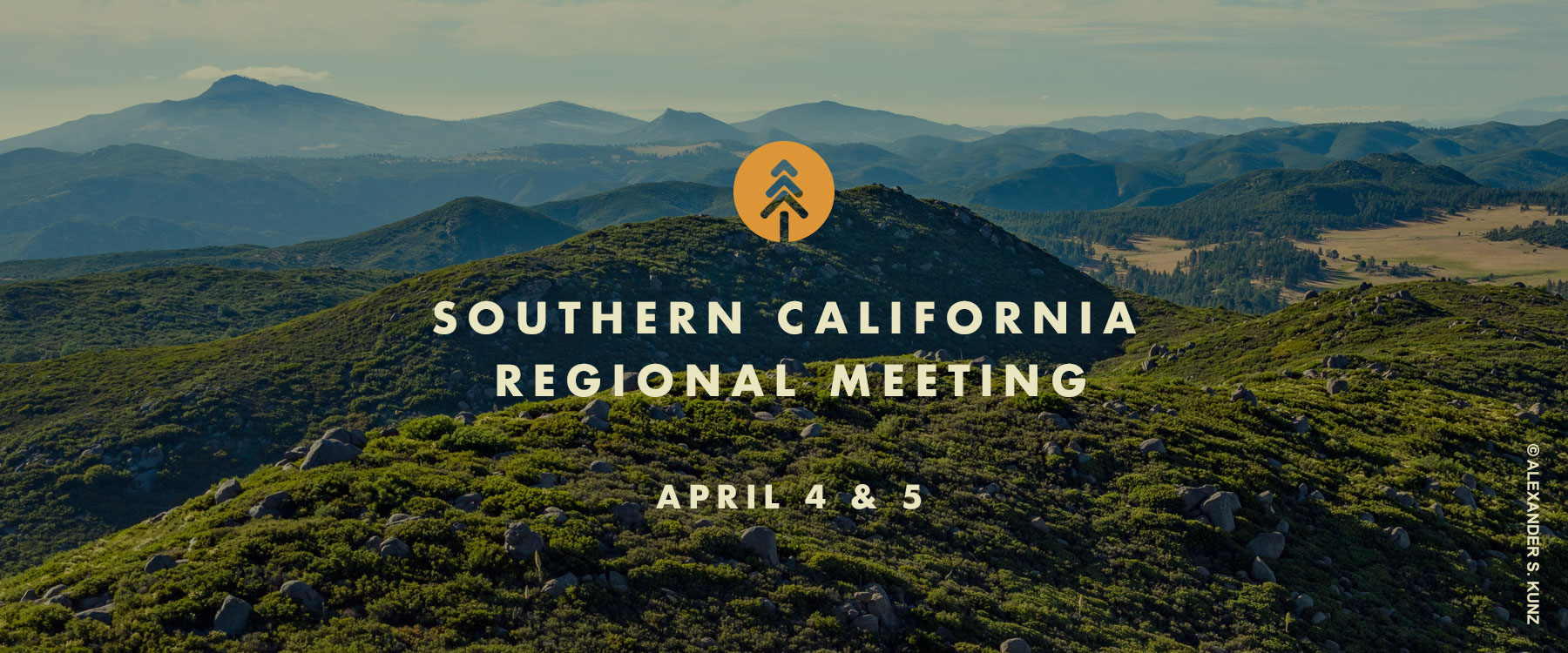
Southern California Regional Meeting
REGISTER early to reserve your seat at the next meeting of the California Wildfire and Forest Resilience Task Force, April 4 at the San Diego Zoo Safari Park in Escondido, CA.
Hosted by the RCD of Greater San Diego County and the San Diego Zoo Wildlife Alliance, the agenda and activities on April 4 will focus on landscapes and land management issues unique to Southern California. Agenda topics will include cultural burning, utilities & infrastructure, and regional planning & optimization.
On April 5, Task Force Partners will host a variety of field tours offering immersive opportunities to better understand the critical landscape health and wildfire resilience work being done in the Greater San Diego region.
REGISTRATION IS REQUIRED. Last day to register is March 27.
April 4 & 5, 2024
San Diego Zoo
Safari Park
Escondido, CA
EVENT SCHEDULE
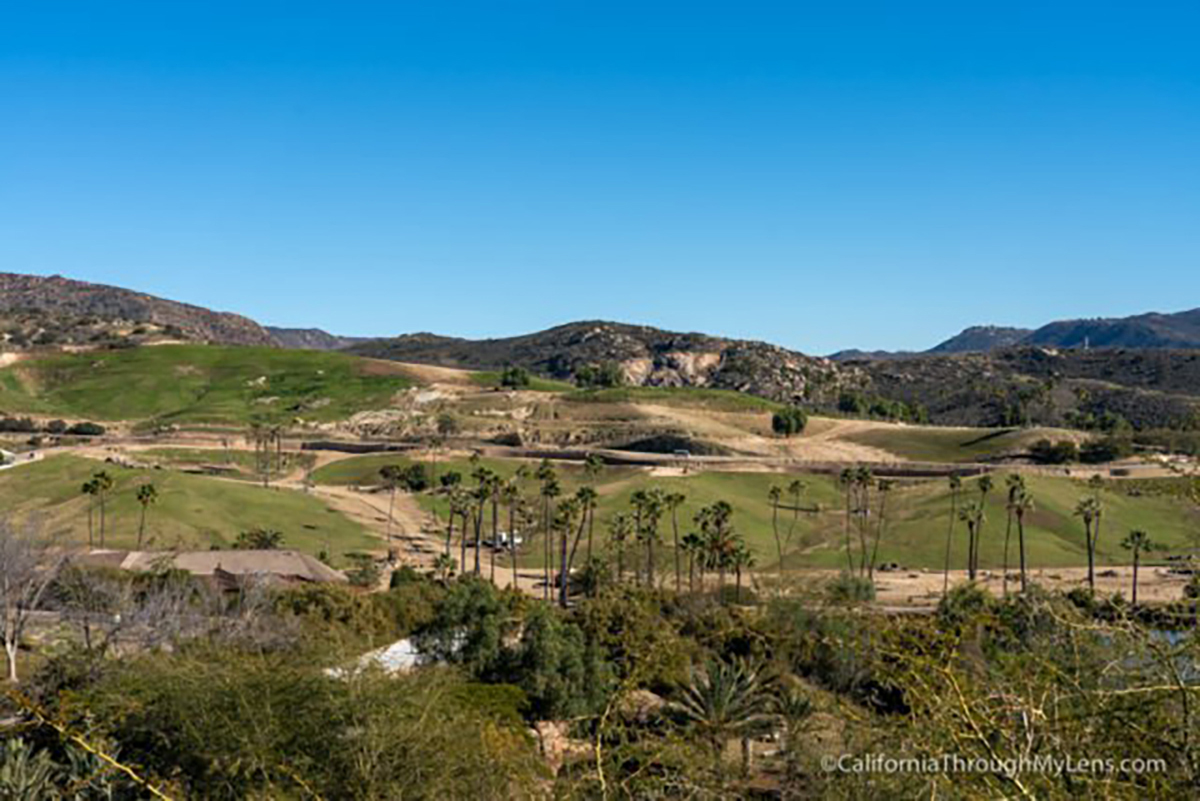
APRIL 4: MEETING SCHEDULE
Resource Fair
8:30 – 10:00 a.m.
Morning Session
10:00 a.m. – 12:30 p.m.
Lunch
12:45 – 2 p.m.
Afternoon Session
2 p.m. – 4:30 p.m.
Free time to enjoy the Safari Park
4:30 p.m. – 7 p.m.
field tours
FIELD TOURS WILL BE OFFERED ON April 5th
Saving San Diego’s Last Mixed Conifer Forest
Destination: Join the Palomar Collaborative, a group of five federal, state, tribal, and private property owners and managers to learn how the Collaborative is utilizing CAL FIRE Forest Health funds to save San Diego’s last mixed conifer forest through a combination of mechanical thinning, pile burning, and mastication.
Tour Host: RCD of Greater San Diego County
Location: Palomar Observatory
Start/End Time: 10:00 AM – 1:00 PM
Accessibility: Some walking on dirt roads, uneven surfaces
Notes: Carpool encouraged, bring snacks/lunch, layered clothing
Applying Traditional Ecological Knowledge to Forest Health
Destination: This dyanamic tour will feature field presentations on site history, a cultural burn site and a Lumbercycle demonstration. There will also be a discussion on Traditional Ecological Knowledge, funding and collaboration, burning on trust land, and the impact of goldspotted oak borer tree mortality in the area.
Tour Host: La Jolla Band of Luiseno Indians
Location: VIEW
Start/End Time: 9:00 AM – 1:00 PM
Accessibility: Driving on dirt road (prius accessible), minimal seating available, tour will be given on mostly flat, dirt terrain
Notes: Field clothing, hat, sunscreen, bug spray, recommended. If available bring mask, eye protection, preferred hearing protection, PPE will be provided as needed for lumbercycle demo. Carpool recommended. Bring snacks.
Fire History and Frequent Fires in the Cedar Creek Falls Trail Region
Destination: Join CAL FIRE and USFS in the San Diego Country Estates / Cedar Creek Falls Trail to learn what they are doing to defend a WUI community and surrounding ecosystem from frequent fire.
Tour Host: CAL FIRE/USFS
Location: Inaja Trailhead
Start/End Time: 8:00 AM – 1:00 PM
Accessibility: 1 mile roundtrip hike on uneven terrain
Notes: Carpools encouraged. Please bring lunch, water, hat, and sunscreen. No bathrooms along trail. Limited shade / cover. Please wear appropriate footwear for hiking.
Powerlines, Roadsides, and Flashy Fuels
Destination: First, learn about the fire hardening and undergrounding work that has already been completed by San Diego Gas & Electric, along with their future risk reduction plans. Then, visit an ignition reduction demonstration site on a fuelbreak on the Cleveland National Forest (NF) designed by UC Santa Barbara and funded by the San Diego River Conservancy. You’ll see the results of herbicide use to control invasive flashy fuels followed by seeding of less ignitable native plants. Finish with a firsthand look at a BurnBot in action, the first use in Southern California and a critical test of its capability to eliminate the invasive seedbank in addition to the above-ground fuels. This collaboration was funded by the National Forest Foundation as part of the Southern California Ignition Reduction Program (SCIRP) conservation finance effort. It will also lay black line for broadcast burning of a unit on the Cleveland NF. Along the way, learn how SCIRP involves collaboration among many partners, especially CalTrans, from the Mexican border to Monterey.
Tour Host: USFS
Location: VIEW
Start/End Time: 9:00 AM – 12:30 PM
Accessibility: short walks on uneven terrain
Notes: Carpools encouraged. Closed toed shoes required. Option to bring your own lunch and eat onsite.
Postfire Restoration at Cuyamaca State Park and Prescribed Fire on Mt. Laguna
Destination: Join the California State Parks and the US Forest Service to examine first hand what CA State Parks are doing to reforest Cuyamaca Rancho SP following wildfire, and join a discussion on management approaches and the Montane Strategy at Mt Laguna. This field trip visits the location where the 2003 Cedar Fire converted 10,000 acres of montane forest to shrubland. We will highlight State Parks’ major postfire reforestation effort and the Cleveland National Forest’s forest health program for reintroducing maintenance fire into the Laguna Mountains. Stops will include locations on both Cuyamaca State Park (Hwy 79) and the Cleveland National Forest (Sunrise Hwy).
Tour Host: CA State Parks/USFS
Location: Cuyamaca State Park, Paso Picacho
Start/End Time: 8:30 AM – 1:30 PM
Accessibility: Sites will be on or adjacent to roadways, and hiking will be very limited.
Notes: Carpools encouraged. Lunch is not provided and the tour will not end before 1:30; please bring a lunch, snacks, and water. Sturdy shoes, hat and a warm layer are recommended.
Wildfire Grazing: Rancho Jamul Reserve
Description: Join conservation experts in the Rancho Jamul Ecological Reserve to learn how local ranchers, land managers, and the environmental community are utilizing a prescribed grazing plan managing livestock on a commercial cattle ranch with a goal of improving wildfire resilience, and promoting soil health and carbon storage, while achieving many other aligned environmental co-benefits.
Tour Host: CDFW
Location: VIEW
Start/End Time: 9:30 AM – 12:30 PM
Accessibility: Walking approx 1 mile on relatively flat terrain.
Notes: Carpools encouraged. Closed toed shoes required. Option to bring your own lunch and eat onsite. Binoculars encouraged.
Impacts from the Witch Creek Fire to the Bernardo Fire to Now
Destination: Join this out-and-back hike along the “River of Fire” and learn how San Dieguito River Valley Conservancy is managing invasive species and fire risk in a Southern California riparian ecosystem that has been impacted by previous wildfires.
Tour Host: San Dieguito River Valley Conservancy
Location: VIEW
Start/End Time: 9:00 AM to 2:00 PM
Accessibility: Recommended for experienced hikers – 2.8 miles out and back (5.6 miles total).
Notes: Carpools encouraged. Please bring lunch, water, hat and sunscreen. No bathrooms along trail. Limited shade / cover. Please wear appropriate footwear for hiking.
Unique Approaches to Resource Management and Emergency Response on the International Border
Destination: Spend the day exploring the Otay Mountain Wilderness Area which sits directly on the busy International Border, with stops that include the International Fuel Break. There will be discussions about partnerships with Mexico, unique species to the area, and border response challenges. The tour will offer views of the border wall, Tijuana, downtown San Diego, and the Pacific Ocean. Participants will learn about unique approaches being applied for resource management and emergency response in a border area.
Tour Host: CAL FIRE
Location: VIEW
Start/End Time: 9:30 AM to 1:30 PM
Accessibility: Optional short hike to viewpoint. Short walks on flat terrain.
Notes: We will meet at County Fire Station 38 (850 Alta Road, San Diego, CA 92154). We will be utilizing 2 CAL FIRE vans for attendee transportation. While there is no security threat, participants will see migrants on the roadway up to the tour stops. No lunch provided. Restaurant options available.
Guided Tour of Resource Management and Wildfire Mitigation Programs at the Safari Park
Destination: Venture into the Safari Park’s expansive wildlife habitats on the back of a covered, open-air safari truck, with an expert guide to get an up-close view of a variety of wildlife with a special opportunity to learn about the BioReserve. Visit San Diego Zoo Wildlife Alliance’s new Heli-Hydrant Dip Tank, and gain an understanding of SDZWA’s multi-faceted wildfire mitigation program that supports wildlife on grounds, including in our large, multi-species habitats.
Location: San Diego Zoo Safari Park Parking Lot. Meet at the Log Ring.
Start/End Time: 10 AM – 12 PM
Accessibility: Ability to climb steps into truck
Notes: Closed toe shoes required. Casual attire (layers recommended).
CAL FIRE’s Urban and Community Forestry Program in Action
Destination: A unique opportunity to go behind the scenes and see an example of the partnership between CAL FIRE and private industry. Participate in a tour of the Taylor Guitars Factory led by founder Bob Taylor. The tour will focus on the process of building Taylor Guitars and Taylor’s Urban Wood Initiative. Tour will end with a Q & A session, an opportunity to play a selection of guitars, and a visit to the gift shop.
Location: VIEW
Start/End Time: 1:00 PM – 3:30 PM
Accessibility: Parking available at factory. Tour will consist of indoor walking. Government issued ID (e.g. driver’s license) is required to participate in tour.
Notes: Lunch will not be provided. Wear comfortable walking shoes.
hotel information
Questions? Please contact foresttaskforce@fire.ca.gov
Thank You to our Hosts
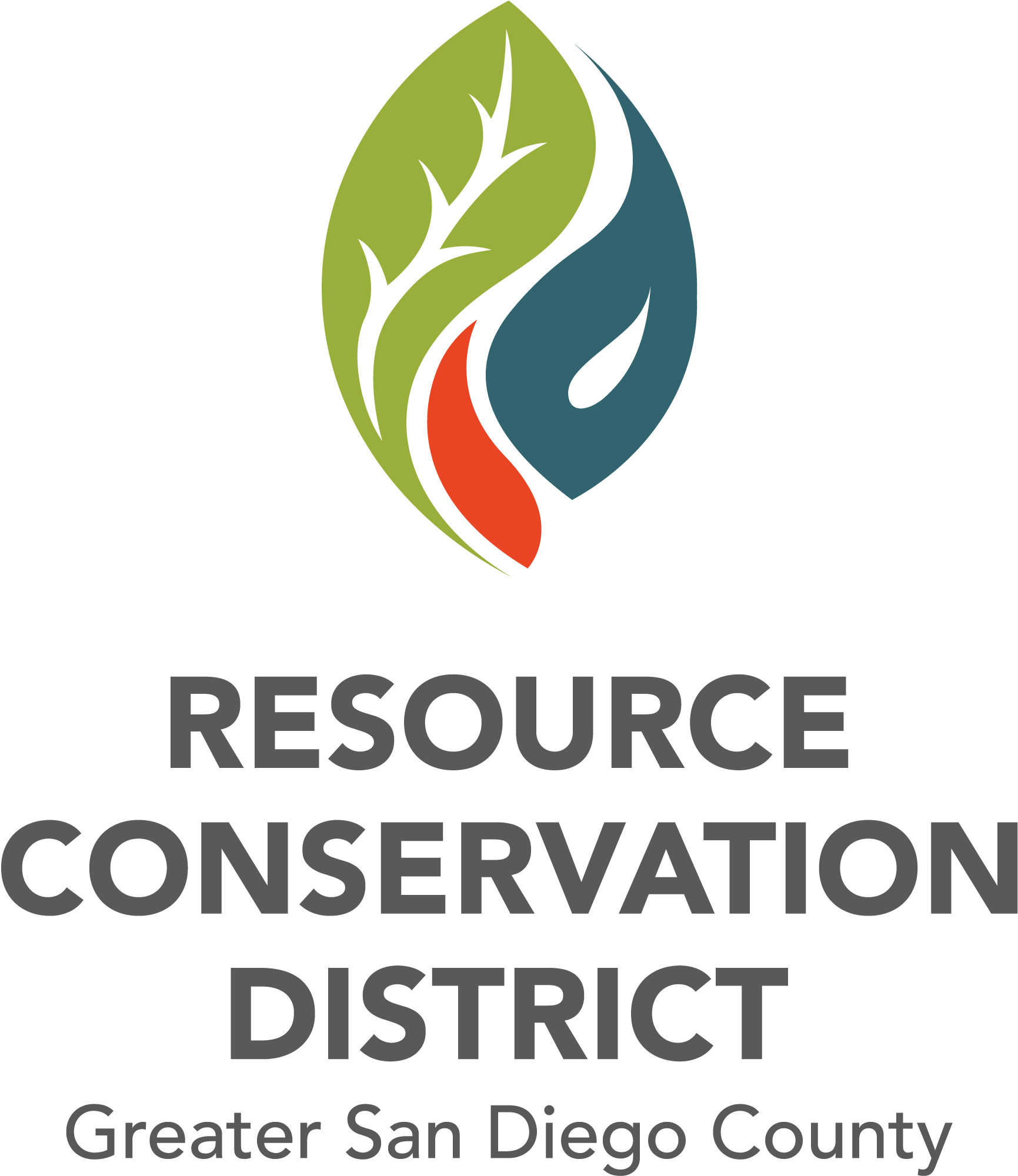
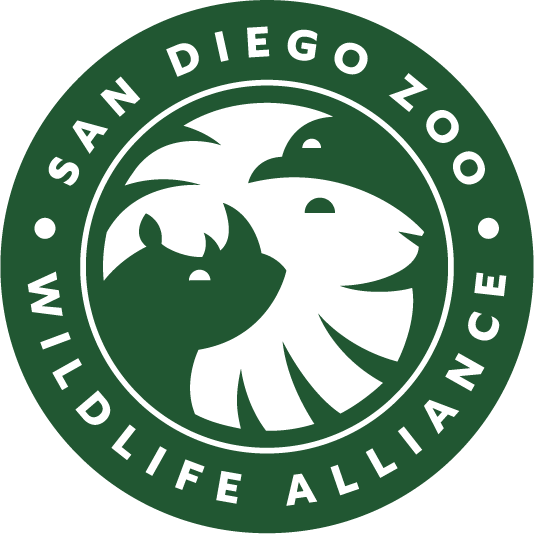
Thank You to our Sponsors


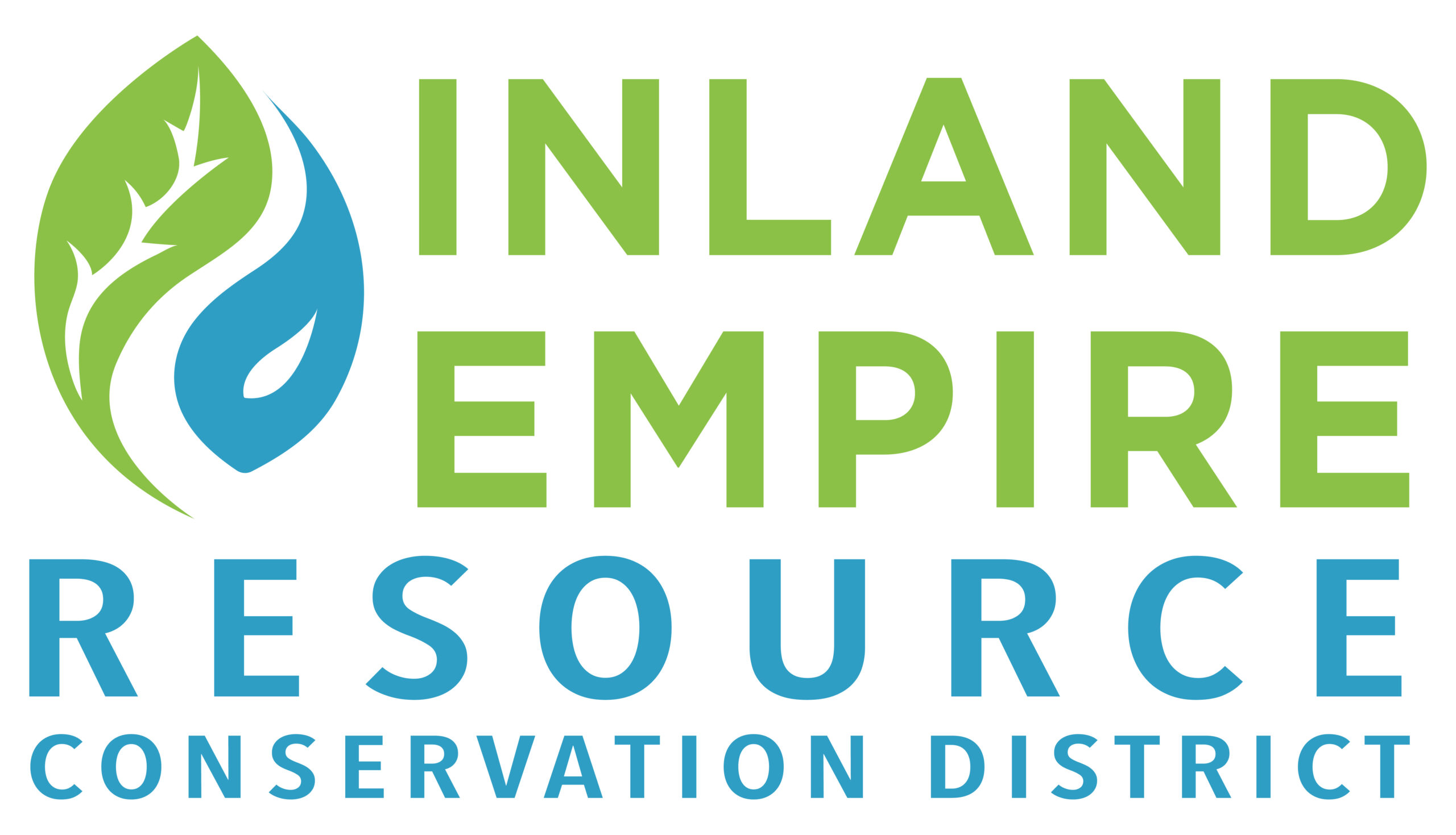

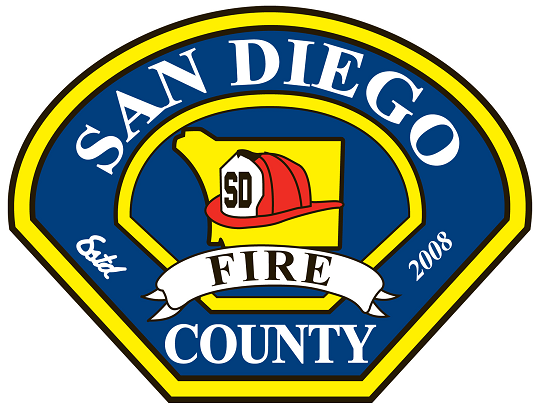

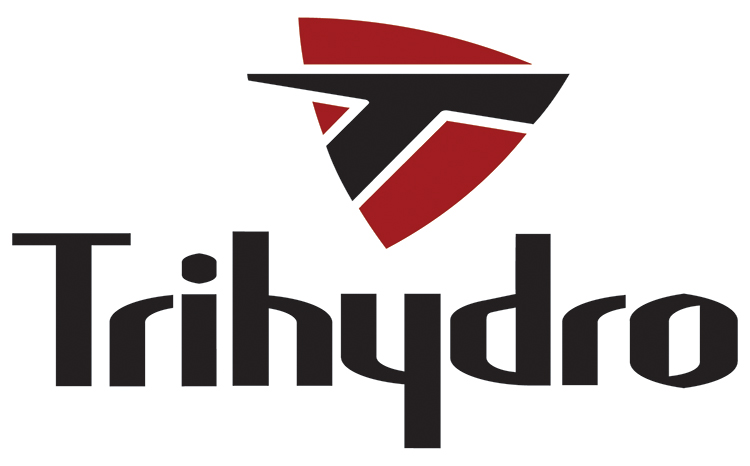
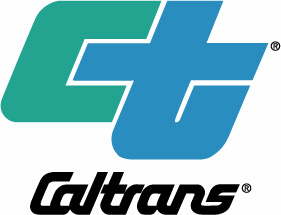


The Climate Science Alliance is offering a limited number of travel stipends for Tribal partners. Contact Althea Walker, Director of Community Resilience, at awalker@climatesciencealliance.org.
USFS Study Shows How Fuel Treatments Improve Wildfire Outcomes
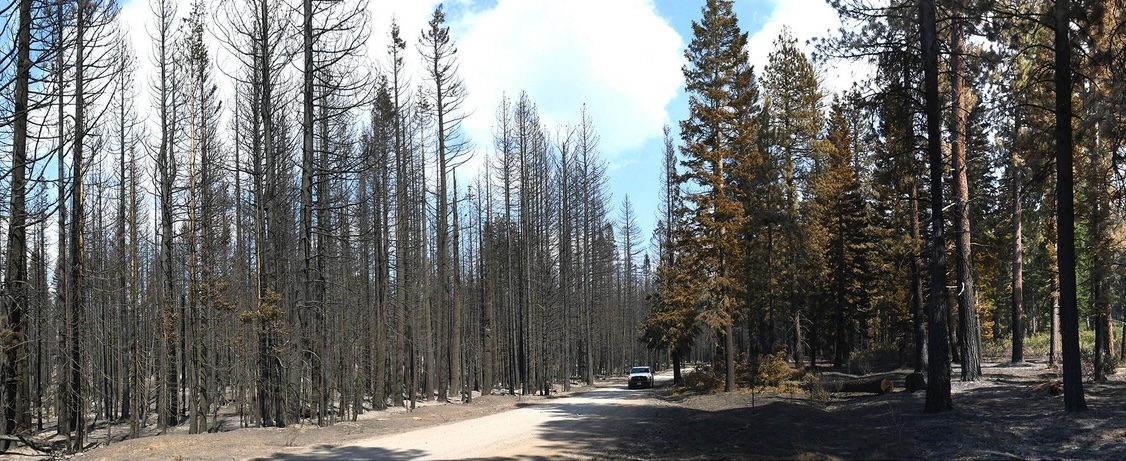
USFS Pacific Southwest Research Station (PSW) Study Shows How Fuel Treatments Improve Wildfire Outcomes
PSW researchers recently published findings that provide strong evidence for the use of fuel treatments to mitigate fire behavior and resulting fire severity even under extreme fire weather conditions. When the 2021 Antelope Fire tore through the Goosenest Adaptive Management Area (long-term research plots set up in northeastern California in the late 1990s), it seemed that 20 years worth of research had been lost. However, shortly after the fire a 2,300-acre study was conducted that demonstrates how reducing canopy bulk density via mechanical thinning treatments can help to limit crown fire behavior for 20 years or more. The findings make a compelling case for doing both tree thinning and prescribed burning to protect forests in the future.
Tahoe Conservancy Grant Supports Joint USFS-Washoe Tribe Project at Meeks Meadow
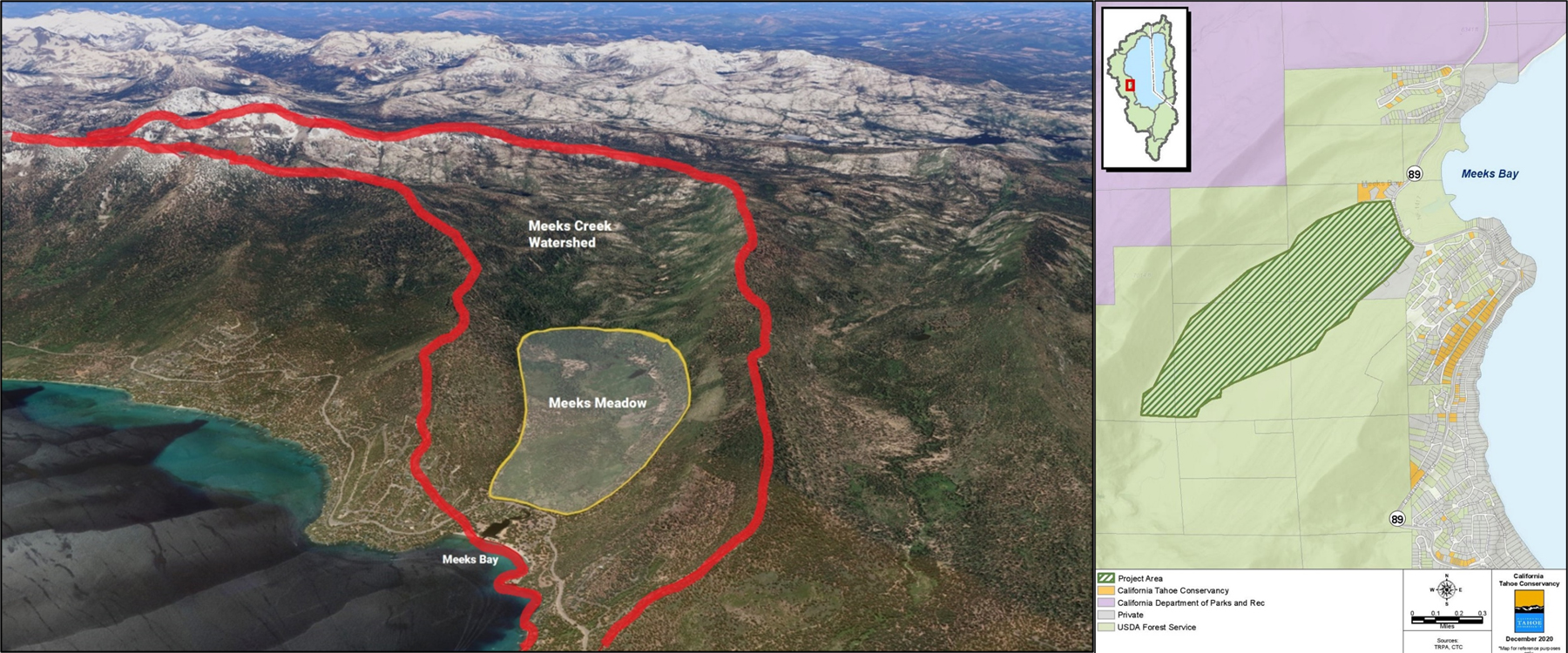
Tahoe Conservancy Awards $600,000 Grant to Support Joint USFS-Washoe Tribe Project at Máyala Wáta (Meeks Meadow)
The California Tahoe Conservancy has awarded a $600,000 grant to the USDA Forest Service Lake Tahoe Basin Management Unit (LTBMU) for forestry operations as part of its joint project with the Washoe Tribe of Nevada and California to restore Máyala Wáta (Meeks Meadow). The absence of low-intensity fire has allowed lodgepole pines to encroach on the meadow, drying the soils and reducing the availability of culturally significant plants. The LTBMU will use these funds, matched by $1 million in federal funds, to remove encroaching conifers from 213 acres of the meadow and thin 70 acres of the surrounding upland forest. This federal, state, and tribal partnership is an excellent example of how Task Force partners can work together to achieve multiple benefits, from improving wildlife habitat to promoting culturally significant plants.
CA Climate Hub Receives USFS Region 5 Partnership of the Year Award
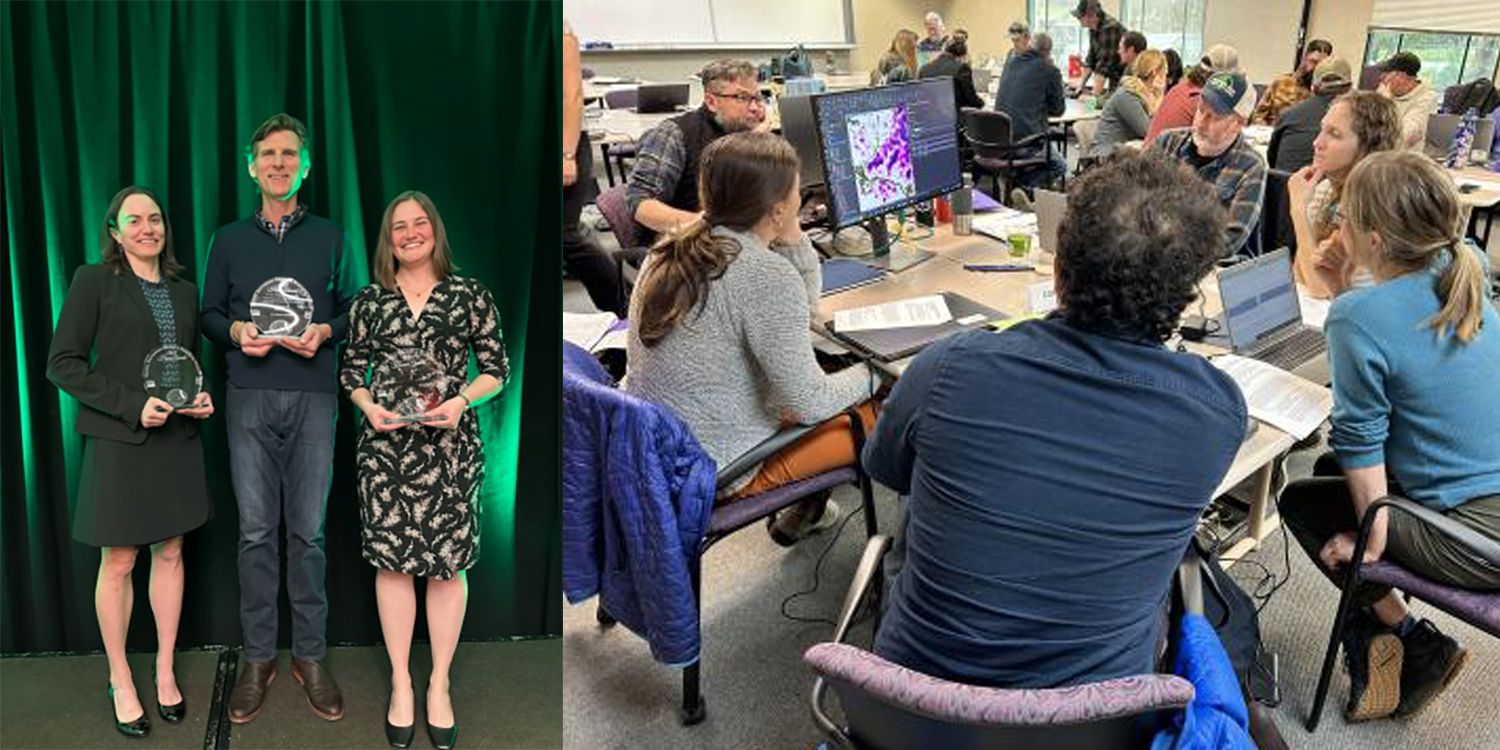
California Climate Hub Receives USFS Region 5 Partnership of the Year Award
The USDA Forest Service Region 5 awarded the California Climate Hub the 2023 Honor Award for Partnership of the Year for their efforts to develop and deliver climate literacy and web-based climate tools trainings. The trainings familiarized participants with relevant information on climate and climate models and provided hands-on experience using two web-based climate data tools: Cal-Adapt and Climate Toolbox. Additionally, the California Climate Hub has designed and delivered a series of workshops focused on the applications of the California Wildfire and Forest Resilience Task Force’s Regional Resource Kits. The most recent workshop gathered forest managers from local, state, and federal agencies at Shasta-Trinity National Forest in Redding.
Fire Adapted Communities
FIRE ADAPTED COMMUNITIES
Working at the intersectionof people, fire & place
The challenges involved in adapting communities to be more fire resilient are remarkably vast and diverse. It’s also inherently local, as no two areas in the state have the exact same set of needs, values, risks, and capacities.
By aligning resources, tools and organizations, the California Wildfire & Forest Resilience Task Force is uniquely structured to address the scope and complexity of resourcing and supporting communities to achieve a more resilient future.
The Vision Statement from the Fire Adapted Communities Work Group is a testament to that approach.
“Our vision for fire-adapted communities will require working across sectors and scales in new ways by engaging people and institutions to build community capacity and partnerships, leveraging investments, and prioritizing and scaling actions for maximum impact. We will accelerate and improve the effectiveness of fire prevention, planning, mitigation, response, evacuation, and recovery. We will embrace holistic and equitable approaches that empower our communities and build sustained wildfire resilience at all scales, while respecting the diverse places and landscapes across our state.”
California’s communities will become more resilient to wildfires by redefining our relationship with fire, protecting and sustaining our people and the places we live, and working towards a fire-adapted future.
FAC Roadmap and Dashboard Project
The Task Force’s Fire Adapted Communities Work Group, with help from Resources Legacy Fund, CAL FIRE, Ascent and others, initiated the FAC Roadmap and Dashboard Project – a strategic statewide initiative focused on fire-adapted and resilient communities, expanding, and building upon other ongoing California wildfire resilience initiatives.
The FAC Roadmap will serve as the strategic plan and implementation strategy for the community fire adaptations and resilience effort of the Task Force, with specific goals and strategic actions that both inform and serve as a critical source of content for the next update to the Action Plan in 2024.
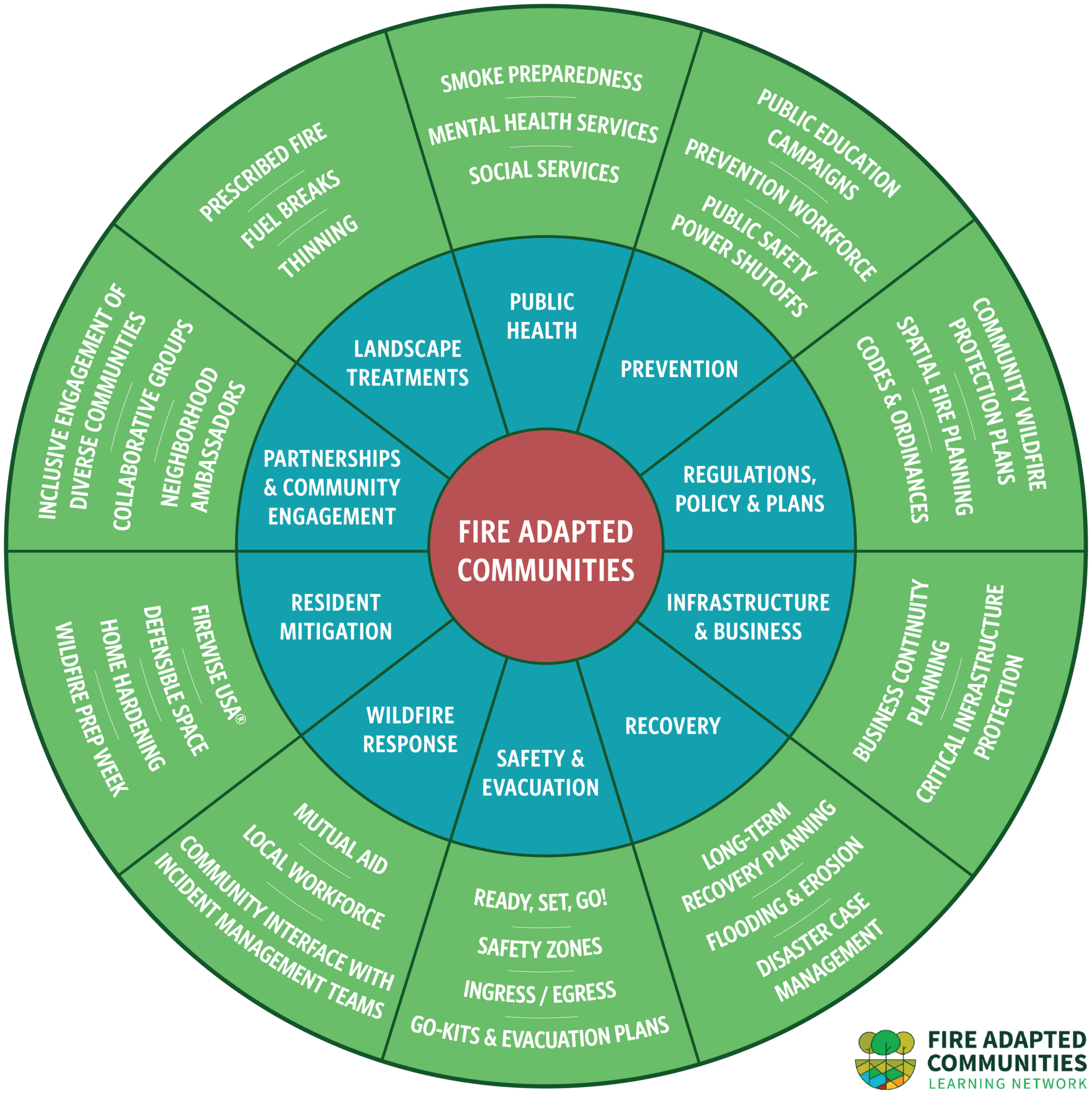
The FAC Framework and Components
The FAC Wheel serves as the organizational foundation for developing a strategic statewide framework for community-focused fire adaptation and resilience. The blue inner ring displays the main framework components, while the green outer ring displays examples of specific programs or activities communities can engage in. The Wheel describes a set of components that make up community wildfire adaptation, but it should be noted that it is not a check-list or “one-size-fits-all” approach; every community’s journey to living better with fire is unique.
COMPONENTS
Prevention
Most wildfires begin with human-caused ignitions, and efforts are already in place to address and reduce these ignitions. For example, electric utilities play a significant role in ignition prevention, and public awareness campaigns can play major roles in prevention, among other efforts.
Actions:
- Action 2.11: Maintain Fire Prevention Grants.
- Action 2.21: Review Wildfire Mitigation Plans.
- Action 2.22: Coordinate Utility-Related Wildfire Mitigation Initiatives.
- Action 2.23: Expand United States Forest Service (USFS) Master Special Use Permits.
Other Efforts:
· CAL FIRE “One Less Spark” Campaign
· Fire Weather Watches and Red Flag Warnings
· OSFM Fireworks Program
· OSFM Wildfire Prevention Guides
· Public Safety Power Shutoffs
· Reducing Utility-Related Wildfire Risk: Utility Wildfire Mitigation Strategy and Roadmap for the Wildfire Safety Division
Resident Mitigation
Fire hazard mitigation in the residential context includes protecting both individual homes and properties, as well as overall neighborhood- or community-scale implementation, to reduce the risk of fire-related damage or loss caused by embers, radiant heat exposure and combustion, or direct flame contact.
Resident mitigation efforts include defensible space, home hardening, and fire-resistant landscaping and building materials, among others. It is important to note that these concepts are not unique to single-family homes, but also includes multi-family properties, manufactured homes, and other housing types, to ensure protection that spans the entire community.
Additionally, while the FAC framework does not include a “commercial mitigation” component, some concepts addressed under resident mitigation may also apply to infrastructure and businesses.
Actions:
- Action 2.19: Develop WUI Fire Safety Training Manual
- Action 3.8: Launch Catalyst Fund Forest Investments
- Action 3.9: Develop X-Prize for Wood Product Innovation
- Action 3.10: Address Feedstock Barriers through Pilot Projects
- Action 3.11: Develop Statewide Forest and Wood Products Workforce Assessment
- Action 3.12: Maintain and Develop Removal Incentives
Other Efforts:
· California Climate Insurance Working Group
· California Fire Safe Council
· California Wildfire Mitigation Program
· CAL FIRE County Coordinator Grant Program
· CDI “Safer from Wildfires” Initiative and Regulations
· Defensible Space Regulations
· Fire Aside ChipperDay Platform
· IBHS “Wildfire Prepared Home” Program
· Local Home Retrofit and Defensible Space Assistance Programs
· NFPA “Firewise Communities” Firewise USA® Recognition Program
Infrastructure & Business
Wildfires can affect a wide array of assets that are vital to a functioning community, including infrastructure and local businesses. This component of FAC is related to critical facility and infrastructure protection (e.g., hospitals, water infrastructure), along with business continuity, resilience, and the role of private businesses in addressing wildfire risk and supporting wildfire resilience.
Actions:
- Action 2.8: Develop Defensible Space and Home Hardening Curriculum
- Action 2.12: Extend Defensible Space Programs
- Action 2.13: Expand Assistance Programs
- Action 2.14: Increase Defensible Space Inspections
- Action 2.15: Improve Defensible Space Compliance
- Action 2.16: Create a Model Defensible Space Program
- Action 2.17: Expand Home Hardening Programs
- Action 2.18: Develop Home Hardening Guidance
- Action 2.20: Develop Insurance Memorandum of Understanding (MOU)
Other Efforts:
- FEMA Continuity Guidance Circular and Continuity Resource Toolkit
- Local Business Resiliency Initiatives
- NFPA 1600® Standard on Continuity, Emergency, and Crisis Management
- Planning and Investing for a Resilient California: A Guidebook for State Agencies
- PROTECT Program
Community & Regional Planning
Community and regional planning efforts provide an excellent opportunity for localities to reduce wildfire risk within their jurisdictions. Planning, at its foundation, is an articulation of how local or regional governments, residents, and other stakeholders want their communities to look, feel, and function in the future. In WUI areas, or any areas where there are wildfire-related concerns, community and regional planning can set a vision with actionable policies and programs for building resilience to wildfires.
Actions:
- Action 1.18: Develop Prescribed Fire Strategic Action Plan
- Action 1.29: Develop Network of Regional Forest and Community Fire Resilience Plans
- Action 1.36: Complete Timber Harvesting Plan Guidance Documents
- Action 2.4: Update the Fire Hazard Planning Technical Advisory
- Action 2.5: Develop WUI Best Practices Inventory
- Action 2.6: Develop Community Wildfire Protection Plan (CWPP) Best Practices Guide
- Action 2.21: Review Wildfire Mitigation Plans.
- Action 2.26: Assist with General Plans
- Action 4.1: Complete Applied Research Plans
Other Efforts:
- CAL FIRE Land Use Planning Program
- Climate Adaptation Plans
- Community Wildfire Protection Plans
- Fire Hazard Planning Technical Advisory
- General Plans
- Joint Powers Agreements
- Local Hazard Mitigation Plans
- Regional Forest and Fire Capacity Program
- Examples and Best Practices for California Communities
Landscape Treatment
Landscape treatments refer to a suite of measures that strategically manage fuel loads to reduce fire risk. Specifically, these measures can include conducting prescribed burns, developing fuel breaks, thinning roadside vegetation, and generally ensuring that forests, woodlands, or other highly vegetated areas are treated in a way that reduces the risk of wildfire ignition and spread.
Actions:
- Action 2.9: Develop and Maintain 500 Fuels Management Projects
- Action 2.10: Link with Landscape Scale Projects
- Action 2.25: Develop Framework for Safe Road Corridors
- Action 2.27: Expand Highway Treatments
- Action 2.28: Develop Good Neighbor Agreement
Other Efforts:
- CAL FIRE Forest Stewardship Program
- CAL FIRE Prescribed Fire Claims Fund Pilot Program
- CAL FIRE Vegetation Management Program
- CAL FIRE Wildfire Prevention Grants Program
- California Vegetation Treatment Program
- California’s Strategic Plan for Expanding the Use of Beneficial Fire
- Keepers of the Flame
- Roadmap to a Million Acres
Safety & Evacuation
The concepts of safety and evacuation are crucial components of FAC because there will always be some degree of risk—even if measures are taken to reduce risk and build resilience to wildfires, that risk will never be zero. The first and utmost priority when it comes to wildfire, or any hazard, is to protect and sustain human lives, and that could be reflected in pre-fire preparedness, wildfire safety programs and procedures, and robust evacuation planning and execution, among others.
Actions:
- Action 2.24: Identify Subdivision Secondary Emergency Access
- Action 2.25: Develop Framework for Safe Road Corridors
- Action 2.26: Assist with General Plans
- Action 2.27: Expand Highway Treatments
- Action 2.28: Develop Good Neighbor Agreement
- Action 2.29: Expand Messaging Campaign
Other Efforts
- Assembly Bill 747 (Levine, 2019)
- Assembly Bill 1409 (Levine, 2021)
- CAL FIRE Subdivision Review Program
- Medical Baseline Program
- Microgrid Incentive Program
- PG&E Backup Power Transfer Meter Program
- PG&E Portable Battery Program
- “Ready, Set, Go” Campaign
- Senate Bill 99 (Nielsen, 2019)
Public Health
Wildfire can affect people’s physical and mental/emotional health significantly. Perhaps most notably, smoke from wildfires can result in an array of human health impacts (e.g., respiratory issues). However, wildfires can also lead to water supply and soil contamination, along with a severe mental health toll caused by death or injuries to loved ones, property damage or loss, temporary or long-term displacement, and other impacts. A strategic framework for fire-adapted and resilient communities must consider and prioritize public health.
Actions:
- Action 1.39: Update Prescribed Fire Information Reporting System (PFIRS)
- Action 2.30: Launch Smoke Ready California Campaign
- Action 2.31: Release California Smoke Spotter App
- Action 2.32: Enhance Prescribed Fire Reporting
Other Efforts:
- California Smoke Blog
- Protection from Wildfire Smoke Standard
- Wildfire Smoke Clean Air Centers for Vulnerable Populations Incentive Pilot Program
- Wildfire Smoke: Considerations for California’s Public Health Officials
Recovery
The goal of disaster recovery is timely restoration, strengthening and revitalization of infrastructure, housing, and a suitable economy, as well as the health, social, cultural, historical, and environmental fabric of affected communities. In the context of fire, recovery refers to the comprehensive and coordinated process of both short-term actions that typically begin after a wildfire has been contained, as well as longer-term, ongoing actions that serve as steps towards rebuilding communities that have been impacted by wildfire. Wildfire recovery is intrinsically broad, as it touches on many different aspects of society and requires coordination between an array of actors.
Actions:
- Action 1.34: Develop Coordinated State Restoration Strategy
Other Efforts:
- California Community Foundation Wildfire Recovery Fund
- California Disaster Assistance Act
- California Disaster Recovery Framework
- California Wildfire Fund
- Consolidated Debris Removal Program
- EDA Economic Adjustment Assistance Program
- FEMA Public Assistance and Individual Assistance
- Fire Victim Trust
- HUD Community Development Block Grant Programs
- USDA Disaster Assistance Programs
case study #1
A Collaborative Approach Limited Damage Near Susanville
The destruction of the 2020 fire season was neither uniform nor completely random. In many places where public and private partners had already completed work to improve forest health, fires appeared to burn in less dangerous and destructive ways.
case study #2
Strategic Restoration Efforts Saved Homes Near Quincy
The unusually strong August lightning storm that sparked fires across California included 20 ignitions on the Mt. Hough Ranger District of the Plumas National Forest. Several of these merged to become the North Complex, the second-largest Sierra Nevada fire and the deadliest in all of California in 2020.
case study #3
How Effective Land Use Planning Can Help Communities Better Prepare for Wildfire
Molly Mowery, AICP, Executive Director of the community Wildfire Planning Center shares research results that shows how smart and forward-thinking land use planning can help communities better live with wildfire.
case study #4
How Community Wildfire Protection Plans Are Making A Difference in Lake County.
With many communities preparing to take advantage of Community Wildfire Defense Grants, a victim of the Valley Fire shares lessons on keeping your area’s CWPP viable and effective for greater community resilience.
case study #5
Community Partners In Sonoma County Formed A Mental Health Collaborative For Wildfire Survivors
Health problems triggered by stress and trauma from wildfires can develop if communities don’t have the resources to respond. This collaborative in Sonoma County brings trauma informed care to survivors.
Fire Adapted Communities is really about the intersection of people, fire, and place.
– Michelle Medley-Daniel, Fire Networks Co-Director
Guiding Principles
-
- Recognize that climate change, along with decades of suppression-dominated solutions, is increasing the severity and scale of catastrophic wildfires that threaten the health and safety of our people and lands. We must take decisive and potentially disruptive actions to change our course to realize our vision for a fire adapted future and build sustained resilience in the years and decades to come.
-
- Redefine our understanding of and relationship to fire as a natural and indigenous element in the landscape that must be understood, respected, and managed safely through increased education, partnerships, and cross-sectoral engagement with Indigenous, Tribal, and scientific and advocacy communities.
-
- Use holistic, equitable, and community-centered approaches that empower local action and build resilience at all scales, in partnership with and support from public and private entities.
-
- Engage and build community capacity to reduce risks to public health, safety, and property.
-
- Recognize the connections between healthy and vibrant landscapes and community resilience and broaden community education and support for the use of beneficial fire and other landscape management techniques.
“The Task Force is shining a light on some very complicated issues. We’re creating a vision for what adaptation means, and that needs be locally driven.”
– Yana Valachovic, UC Cooperative Extension
PROGRESS METRICS
Progress On Task Force Fire Adapted Communities Key Actions
The table below shows Key Actions for California’s Wildfire & Forest Resilience Action Plan that are assigned to the Fire Adapted Communities Workgroup. Sort by status to see level of progress completion.
Fuel Reduction Treatment Trackers
“There are lots of valid pathways to living better with fire, and Fire Adapted Communities is about articulating those and helping those communities enact those visions.”
– Michelle Medley-Daniel, Fire Networks Co-Director
TASK FORCE MEETING PRESENTATIONS
On December 15 the Task Force met in Sacramento for its final quarterly meeting of 2023. The primary focus was on Fire Adapted Communities. Below are several presentations that provide comprehensive and current overviews of the state of community adaptation.
California’s Progress on Empowering Community Adaptation: Daniel Berlant from CAL FIRE and CA Fire Safe Council’s Jacy Hyde shared updates on how both statewide programs and local communities are building adaptive capacity and improving wildfire outcomes.
California’s Roadmap for Creating Fire Adapted Communities: Two members of the Task Force’s Fire Adapted Communities Work Group — Steve Hawks from CAL FIRE and Erik de Kok, representing Ascent Environmental — shared updates on the Work Group’s recently completed Baseline Assessment and next steps in developing a statewide roadmap for community fire adaptation.
Regional Leaders’ Perspective on Community Resilience to Fire: In a panel moderated by Molly Mowery of Community Wildfire Planning Center, regional leaders from across the state discussed pressing issues communities are facing to better adapt to fire, and the best ways state and federal institutions can support progress at the community level.
FIRE ADAPTED COMMUNITIES WORK GROUP
On the FAC Work Group page you’ll find additional news and updates along with resources, Work Group leadership and Partners.
2023 Year in Review
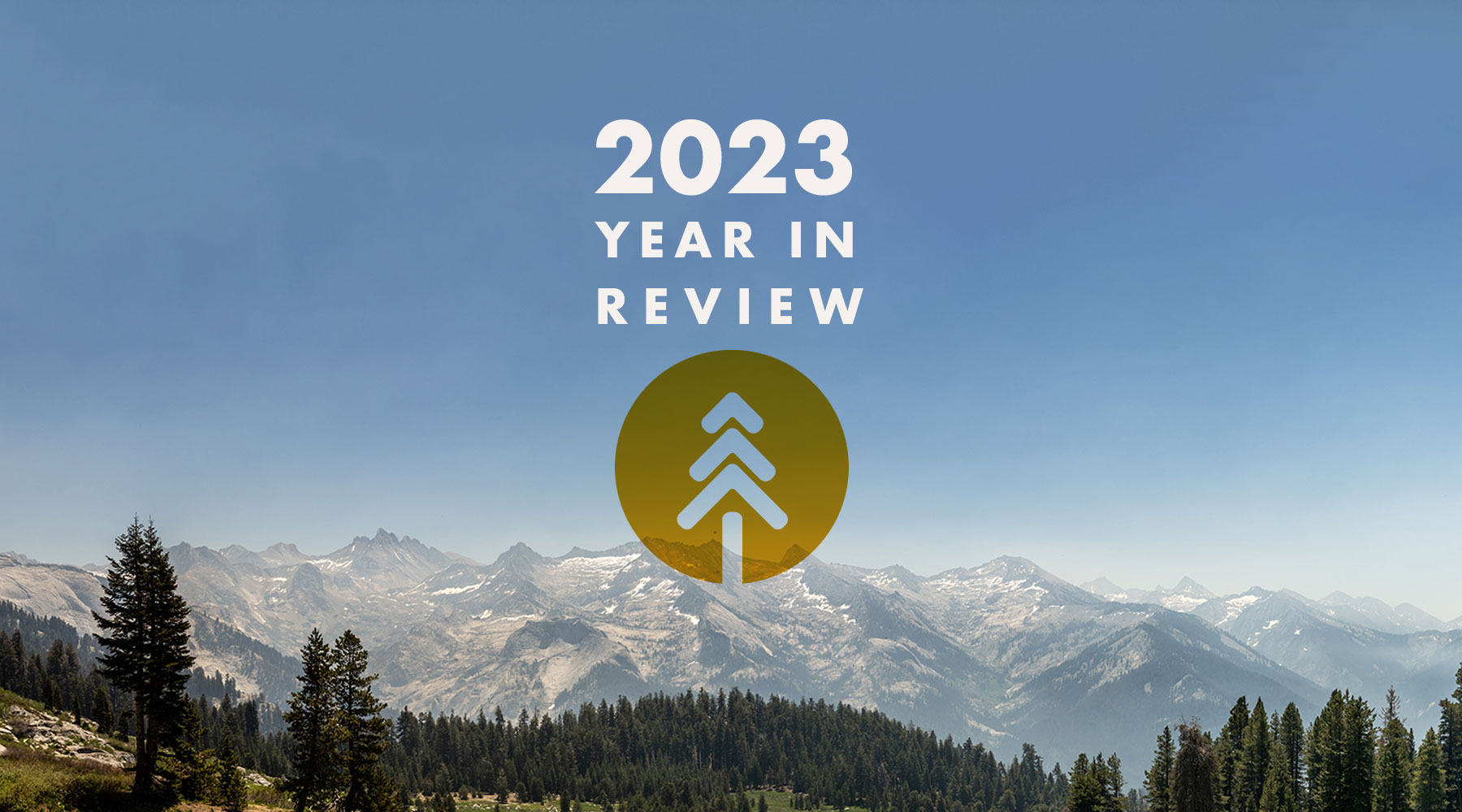
Thank you for being interested and involved in wildfire and landscape resilience efforts in California. Here’s a brief review of 2023 and a preview of what's ahead in 2024. The Task Force Team wishes you and your families a safe, happy and healthy 2024.
2023 highlights
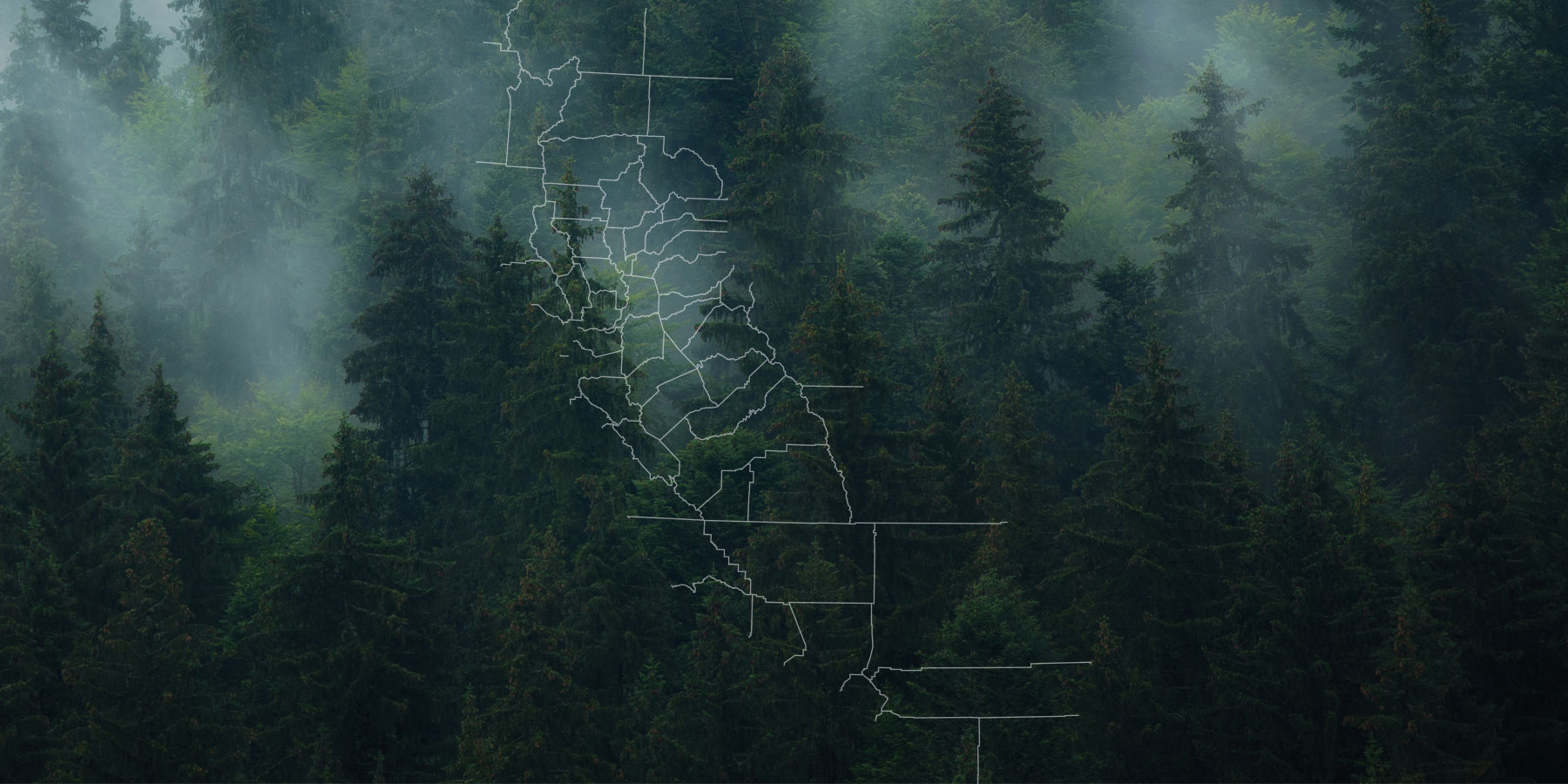
Regional Resource Kits Finalized
Regional Profiles and Regional Resource Kits are now available for all four regions of California. The kits bring together the scientific data needed to help regional entities plan, prioritize and monitor projects.

Treatment Dashboard Launched
The Wildfire & Landscape Resilience Interagency Treatment Dashboard is a highly interactive online tool that displays the location and size of wildfire and landscape resilience treatments throughout the state, helping to guide practitioners on where to plan new projects.
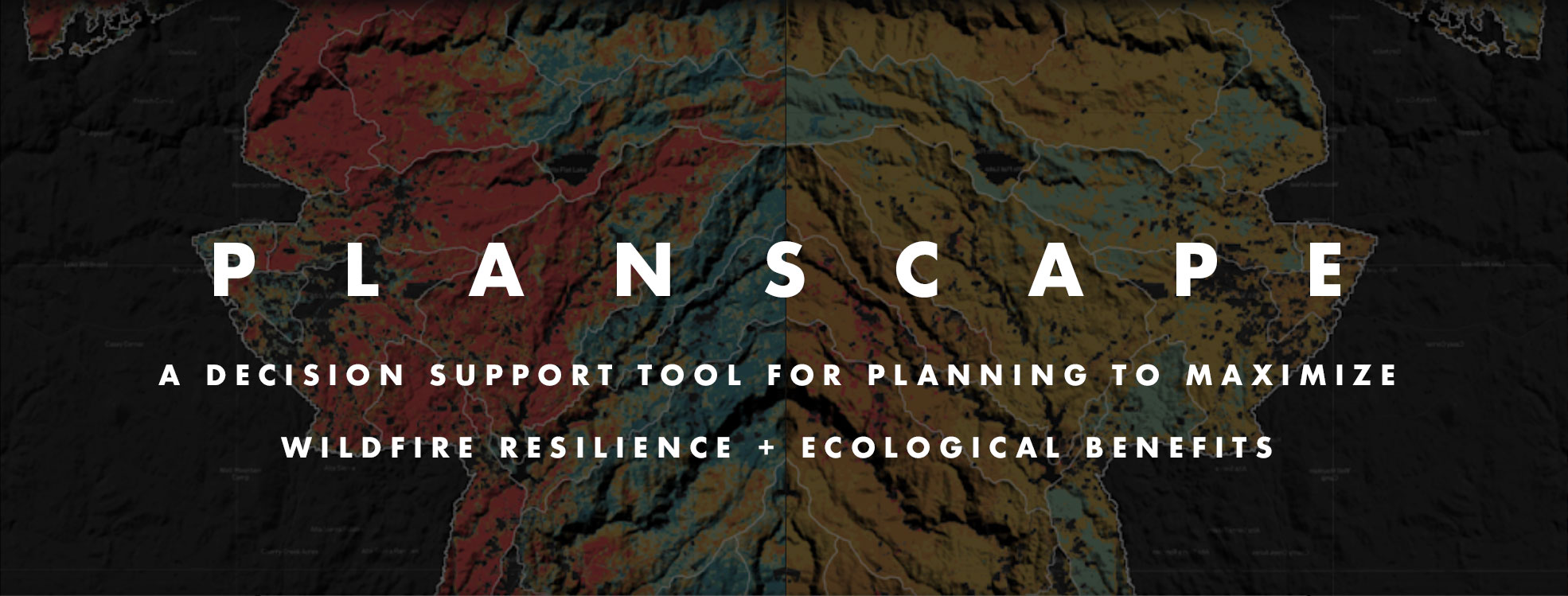
Planscape Beta Available
With a full launch expected in 2024, Planscape can be accessed now to test the early functionality and share feedback. This unique wildfire resilience decision support tool helps regional planners prioritize landscape treatments to mitigate fire risk, maximize ecological benefits, and help landscapes adapt to climate change.
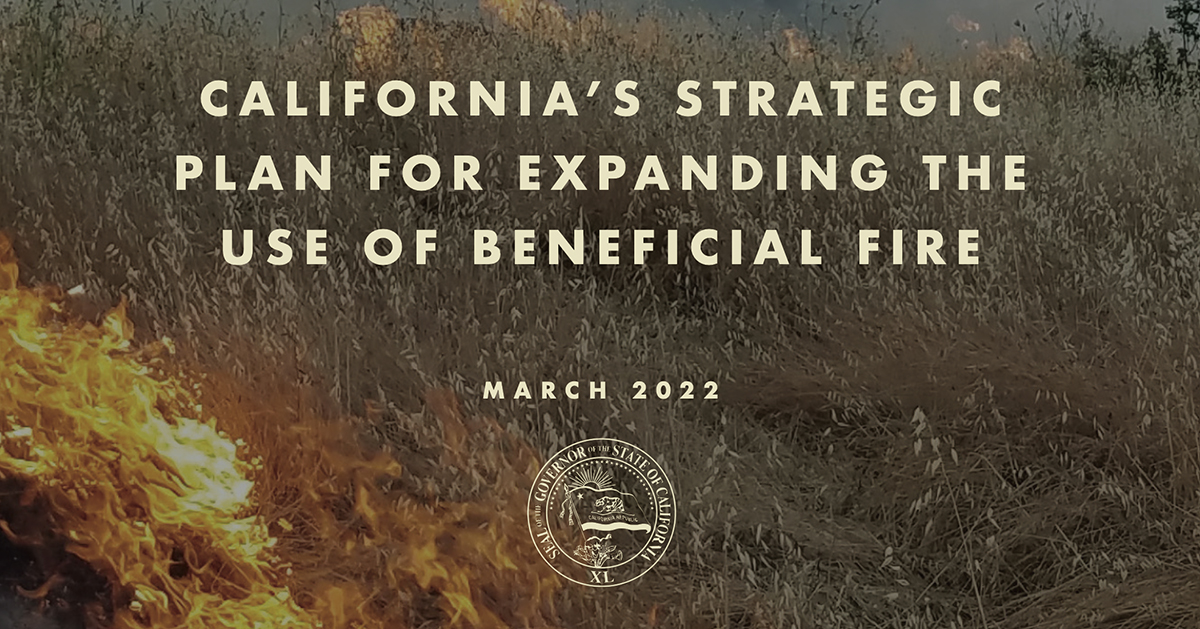
Joint Strategies Completed for Beneficial Fire and Sustainable Outdoor Recreation
Task Force Work Groups completed and launched their Joint Strategies as required in California’s Wildfire & Forest Resilience Action Plan. Click below to see them, and look forward to Reforestation Pipeline, Resilient State Lands and Private Landowner strategies to be published in early 2024.

Regional Meetings in Southern, Central and Northern California
There’s no better way to align resources than bringing people together to focus on regionally specific issues. Three regional meetings were held in 2023, and three more in Sacramento. Hundreds of people came away from the meetings having learned new information, and having made new connections, and inspired to make positive change.
spread the word in 2024
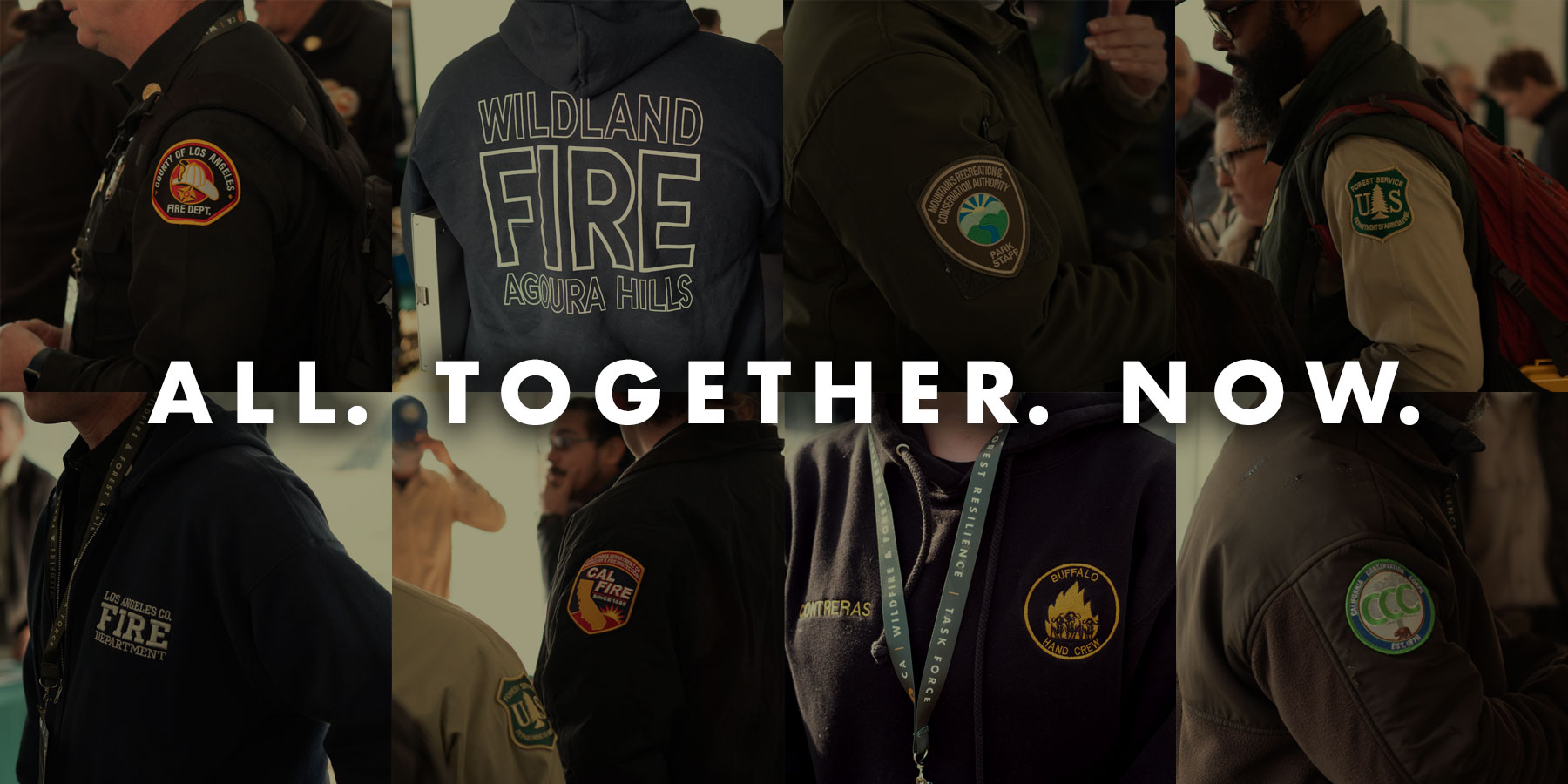
Promote the Task Force in Your Communications
The Task Force is an important source of vital information on the combined efforts of those involved in landscape resilience and wildfire prevention in California. Please follow and share Task Force communications when you can.
Join us at our Upcoming Meetings
April 4-5: Southern CA Region
June 20: Sacramento
September 26-27: Sierra Region
December 13: Sacramento
RESOURCES
ABOUT THE TASK FORCE
The California Wildfire & Forest Resilience Task Force was created by the Office of Governor Gavin Newsom to directly confront the near perfect storm of climatic and human-caused conditions that have brought the threat of devastating wildfire and its far-reaching effects to the doorstep of nearly everyone in our state, and beyond.
The Task Force is a collaborative effort to align the activities of federal, state, local, public, private, and tribal organizations to support programs and projects tailored to the priorities and risks of each region and bring the best available science to forest management and community protection efforts.
The critical work of the Task Force effects all Californians, and Task Force meetings offer an ideal opportunity for members of the press to hear directly from those involved in the comprehensive, coordinated efforts to reduce the risk of catastrophic wildfires and create safe communities while ensuring healthier, more sustainable natural environments.
Explore the Treatment Dashboard - Take The Survey
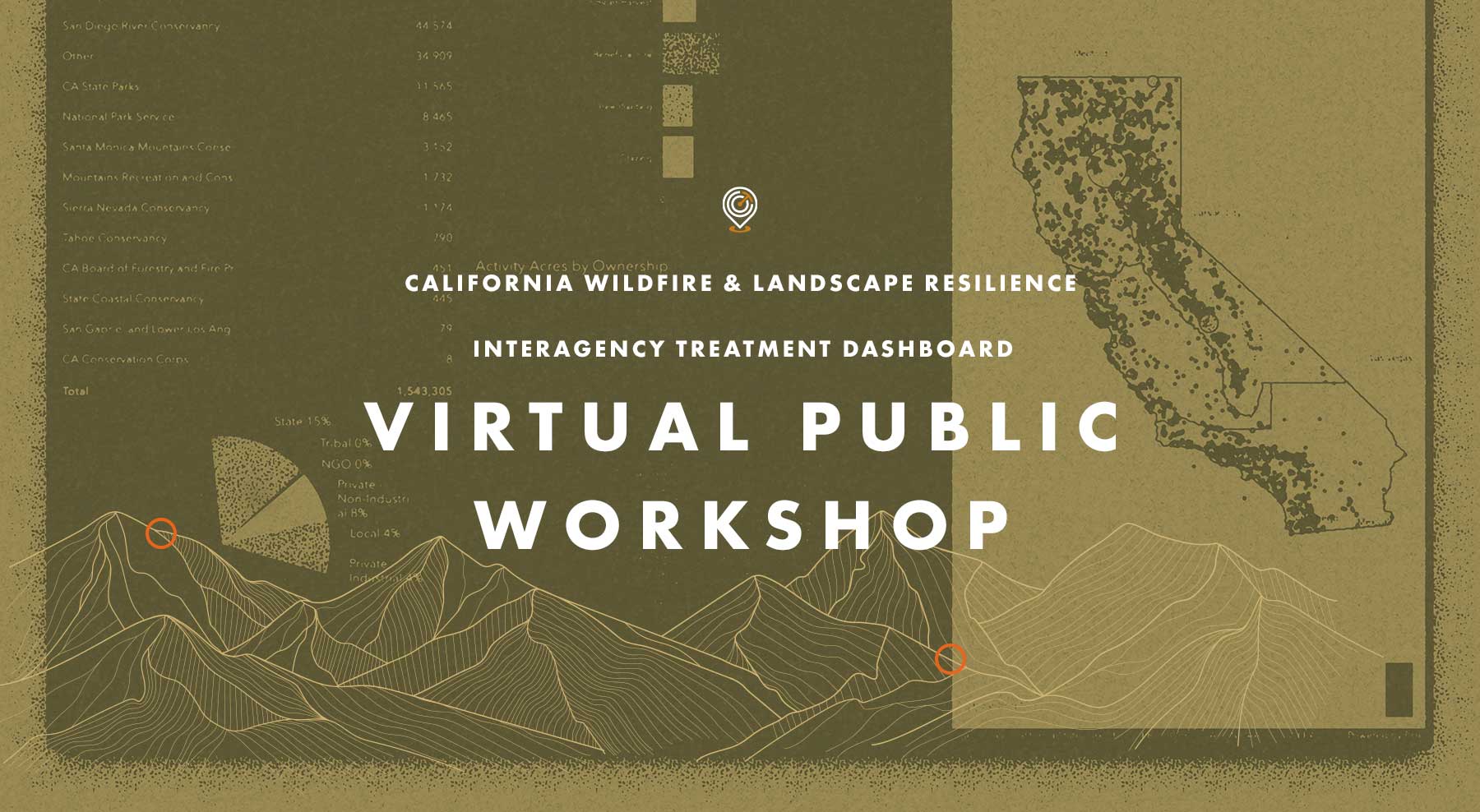
Recap: Treatment Dashboard Virtual Workshop
On Tuesday, November 14 the Task Force hosted a Virtual Public Workshop on the CA Wildfire & Landscape Resilience Interagency Treatment Dashboard. The goal of the workshop was to gather input from those using the Treatment Tracking System and Dashboard to improve how data is accessed and displayed, and to ensure we are providing transparency and effective planning information on statewide wildfire resilience treatments.
If you missed the workshop, or want to look back at what was covered, click on the buttons above to watch a video of the presentation from Alan Talhelm, Assistant Deputy Director for Climate and Energy at CAL FIRE, and a key architect of the Dashboard. You can also view and download Alan’s presentation and take a moment to answer a quick survey for gathering additional input on how the Dashboard can be most effective.

